Engineering: The Literature Review Process
- How to Use This Guide
- 1. What is a Literature Review?
- 2. Precision vs Retrieval
- 3. Equip Your Tool Box
- 4. What to look for
- 5. Where to Look for it
- 6. How to Look for it
- 7. Keeping Current

Your TBR (To Be Read) Pile
Tips for getting through that tbr pile, how to read a research article, using a literature matrix.
- 9. Writing Tips
- 10. Checklist
You've been searching the literature gathering documents -- lots of documents. Your file in a citation manager for this project is bulging and if you've printed out those documents, the pile is huge.
Here's some advice on how to manage all this reading material.
- Tips For Getting Through Your TBR Pile
- Using a Literature Matrix
- Set Goals Decide the date when you need to complete your reading list. How many days away is that from today? How many documents are in your list? If you've got 200 articles to read and you want to accomplish that within a month, you'll need to be reading 6-7 articles each day or about 50 each week.
- Schedule Reading "Appointments" on Your Calendar Don't leave this up to chance. Make an appointment with yourself as often as needed - an hour or two each day, several times a week - whatever you need. And then stick to it; don't cancel your reading time for other activities.
- Always Have Your Reading Available You never know when you might get the "gift of time" so whether you prefer digital or print, carry the items you need to read with you. Whether riding the bus, waiting for someone to arrive for an appointment, standing in line, or riding that exercise bike, take advantage of these short breaks to pull out the next item in your reading pile.
The following articles recommend ways to read and digest a research article ...
- Keshav, S. How to Read a Paper . University of Waterloo (Ontario, Canada) August 2, 2013. "The key idea is that you should read the paper in up to three passes, instead of starting at the beginning and plowing your way to the end. Each pass accomplishes specific goals and builds upon the previous pass: The first pass gives you a general idea about the paper. The second pass lets you grasp the paper’s content, but not its details. The third pass helps you understand the paper in depth."
- Ling, Charles X. and Yang, Qiang. Crafting Your Research Future: A guide to Successful Master’s and Ph.D. Degrees in Science & engineering . Morgan & Claypool, 2012. Synthesis Lectures on Engineering #18. Section 3.3: How to Read Papers presents advice on what parts of a journal article to read and what concepts to look for.
- Purugganan, Mary and Hewitt, Jan. How to Read a Scientific Article . Rice University, Cain Project in Engineering and Professional Communication. 2004. "Reading a scientific article is a complex task. The worst way to approach this task is to treat it like the reading of a textbook ..."
In your review you will need to "group" the literature that you've found. As you'll see in the next section, you can group by theme, method, topic, chronology, and other issues. To keep track of what each document says and which ones have similar information, create a literature matrix. The matrix will consist of a table, with each row representing a specific document. Each column in the table will represent different issues, topics, themes, etc. Once the table is filled out and you re-sort by the different columns, the patterns in the literature will stand out.
Here's some articles that show how to do a matrix.
- Writing a Literature Review and Using a Synthesis Matrix. VCU/NCSU
- Literature Review: Synthesizing Multiple Sources . VCU/IUPUI See the literature review grid on page 2.
- << Previous: 7. Keeping Current
- Next: 9. Writing Tips >>
- Last updated: Jan 2, 2024 8:27 AM
- URL: https://libguides.asu.edu/engineeringlitreview

The ASU Library acknowledges the twenty-three Native Nations that have inhabited this land for centuries. Arizona State University's four campuses are located in the Salt River Valley on ancestral territories of Indigenous peoples, including the Akimel O’odham (Pima) and Pee Posh (Maricopa) Indian Communities, whose care and keeping of these lands allows us to be here today. ASU Library acknowledges the sovereignty of these nations and seeks to foster an environment of success and possibility for Native American students and patrons. We are advocates for the incorporation of Indigenous knowledge systems and research methodologies within contemporary library practice. ASU Library welcomes members of the Akimel O’odham and Pee Posh, and all Native nations to the Library.

University of Illinois Chicago
University library, search uic library collections.
Find items in UIC Library collections, including books, articles, databases and more.
Advanced Search
Search UIC Library Website
Find items on the UIC Library website, including research guides, help articles, events and website pages.
- Search Collections
- Search Website
- UIC Library
- Subject and Course Guides
- Engineering
- How to read a scientific paper
Engineering: How to read a scientific paper
- Articles, Standards, and Databases
- Books & Reference Resources
- Engineering Data Repositories
- Funding Sources
- Managing Your Data
- Citation Managers
- Job Search Resources
- Writing Help
- Open Engineering Resources
Structure of a Technical Paper
How to Read a Scientific Paper
- How to Read a Paper A short work on how to read academic papers, organized as an academic paper. Some of the advice on doing a literature survey works better in the author's field (CS) but most the material works for everyone.
- How to Read a Research Paper Part of an assignment on how to read academic papers for a CS class, it describes some strategies and lays out some expectations in terms of time and effort that should be useful.
- How to Read Scientific Papers Without Reading Every Word A blog post that gives a similar but differently worded take on the same issue.
- How to read Mathematics An article discussing how to go about reading a math article or chapter.

Health Promotion Practice. (2020). How to Read a Scholarly Article [Infographic].
http://healthpromotionpracticenotes.com/2020/07/new- tool-how-to-read-a-scholarly-article-infographic/
Assistant Professor and Reference & Liaison Librarian (STEM)

- << Previous: Citation Managers
- Next: Job Search Resources >>
- Last Updated: Jun 17, 2024 4:44 PM
- URL: https://researchguides.uic.edu/engineering
Unfortunately we don't fully support your browser. If you have the option to, please upgrade to a newer version or use Mozilla Firefox , Microsoft Edge , Google Chrome , or Safari 14 or newer. If you are unable to, and need support, please send us your feedback .
We'd appreciate your feedback. Tell us what you think! opens in new tab/window
Infographic: How to read a scientific paper
April 5, 2021 | 3 min read
By Natalia Rodriguez
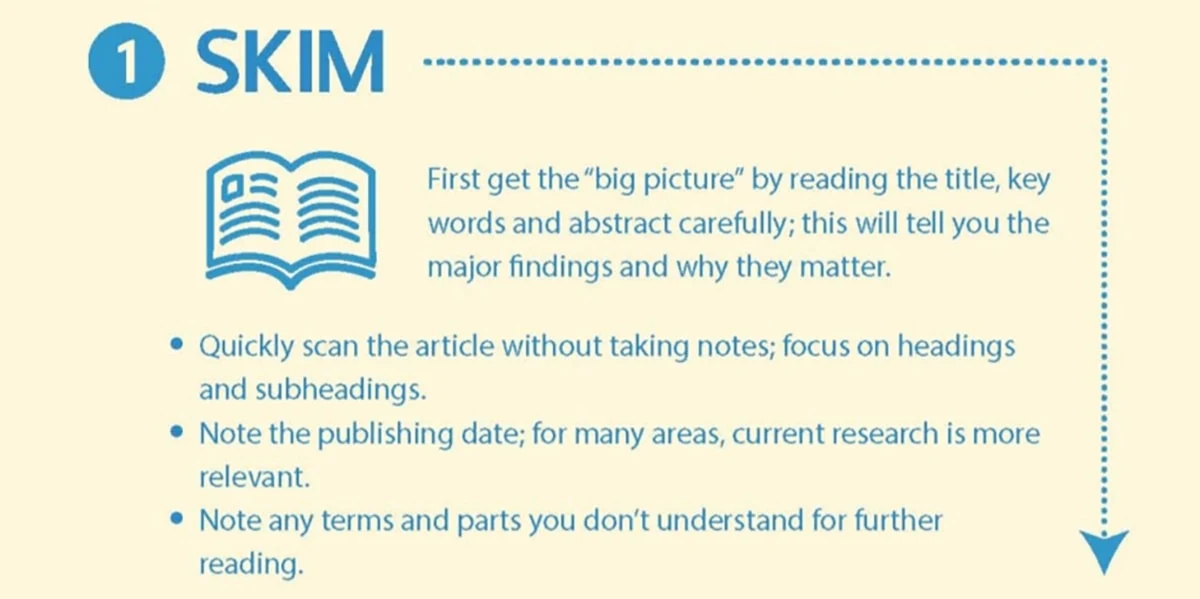
Mastering this skill can help you excel at research, peer review – and writing your own papers
Much of a scientist’s work involves reading research papers, whether it’s to stay up to date in their field, advance their scientific understanding, review manuscripts, or gather information for a project proposal or grant application. Because scientific articles are different from other texts, like novels or newspaper stories, they should be read differently.
Research papers follow the well-known IMRD format — an abstract followed by the I ntroduction, M ethods, R esults and D iscussion. They have multiple cross references and tables as well as supplementary material, such as data sets, lab protocols and gene sequences. All those characteristics can make them dense and complex. Being able to effectively understanding them is a matter of practice.
You can use ScienceDirect’s recommendations service to find other articles related to the work you’re reading. Once you've registered opens in new tab/window , the recommendations engine uses an adaptive algorithm to understand your research interests. It can then find related content from our database of more than 3,800 journals and over 37,000 book titles. The more frequently you sign in, the better it gets to know you, and the more relevant the recommendations you'll receive. Reading a scientific paper should not be done in a linear way (from beginning to end); instead, it should be done strategically and with a critical mindset, questioning your understanding and the findings. Sometimes you will have to go backwards and forwards, take notes and have multiples tabs opened in your browser.
LennyRhine. “ How to Read a Scientific Paper opens in new tab/window ,” Research4Life Training portal
Valerie Matarese, PhD (Ed). “ Usingstrategic, critical reading of research papers to teach scientific writing opens in new tab/window ,” Supporting Research Writing: Rolesand challenges in multilingual settings,” Chandos Publishing, Elsevier (2012)
Allen H. Renear, PhD, and Carole L. Palmer, PhD. " StrategicReading, Ontologies, and the Future of Scientific Publishing opens in new tab/window ," Science (2009).
Angel Borja, PhD. “ 11 steps to structuring a science paper editors will take seriously ,” Elsevier Connect (June 24, 2014)
Mary Purugganan, PhD, and Jan Hewitt, PhD. “ How to Read a Scientific Article opens in new tab/window ,” Cain Project in Engineering andProfessional Communication, Rice University
“How to Read and Review a Scientific Journal Article,”Writing Studio, Duke University
Robert Siegel, PhD. “ ReadingScientific Papers opens in new tab/window ,” Stanford University
Related resources
Elsevier Researcher Academy opens in new tab/window Free e-learning modules developed by global experts; career guidance and advice; research news on our blog.
Research4Life Training Portal opens in new tab/window : A platform with free downloadable resources for researchers. The Authorship Skills section contains 10 modules, including how to read and write scientific papers, intellectual property and web bibliography along with hands-on activity workbooks.
Career Advice portal of Elsevier Connect : Stories include tips for publishing in an international journal, how to succeed in a PhD program, and how to make your mark in the world of science.
Contributor

Natalia Rodriguez
How To: Read an Academic Paper
To start the course, you’re going to be reading a bunch of papers, and so a good place to start is with: How do you read an academic paper? In some ways, that’s putting the cart before the horse because to read a paper, you need to find it — but we’ll assume you’re starting off using the course library, so finding something to get started with should be fine
How Not to Read an Academic Paper
This prompt might sound silly. How do you read an academic paper? Well, you start on page 1, and read to the last page, right?
You could do that , but what you’ll find is that you spend a lot of time on the far right side of the curve of diminishing returns . So, you don’t want to just start on page 1 and read to the last page. What should you do instead? To understand that, it’s important to understand a little bit about how most academic papers are organized.
How Academic Papers are Organized
Most academic papers follow something like this structure:
- Abstract: A high-level summary of the entire paper
- Introduction and Background: What the problem or question is and where it came from
- Related Work: What others have done in this space, likely specifically contextualizing why the authors’ solution is necessary
- Solution: What the authors did to address the problem or answer the question
- Methodology: How the authors evaluated their solution
- Results: The results of evaluating the solution
- Analysis: The authors’ interpretation of the results
- Conclusion: The limitations of the work and what the authors will do next
There is lots of variation there, of course. Pure research papers don’t really have a “Solution” section since they’re often not building something. If a paper was based exclusively on doing some surveys or interviews, for example, it likely would jump straight to methodology. Similarly, there are papers that don’t do much evaluation: they propose a design of some tool or theory, but the contribution is the idea itself.
Generally, though, you can map most papers onto something resembling this structure.
Intention Matters: Getting Started
What you do next depends on why you’re reading a particular paper. What you’re seeking to get out of it matters.
Early in the class, you’re probably just trying to get a high-level view of lots of work going on in a field. For that: start by reading the Abstract. Sometimes, that will be all you need from that paper. That’s ok. You may find that once you settle on an area you want to explore, you might just read a bunch of abstracts to get a view of the field.
When you’re just starting out, though, you probably want to go just a bit deeper. You want to use this paper as an anchor for further exploration. Read the Introduction next. See what problem they’re setting up and how they approach it. Then, jump to the conclusion. See what they found. Oftentimes, this is enough. Then, if you want to find more papers like this one, jump back to the related work section and see what you might want to read next. Your goal here is just to get a feel for what they did and why: once you know what a bunch of people have done and why they’ve done it, you can start to position your own work and take a deeper dive.
For the first couple weeks of this class, that’s about where you’ll stay: you want to get a broad look at what lots of people are working on and start to understand the overall trajectories of the field. You don’t need to get too far into the details of how they did stuff or how they know it worked.
Intention Matters: Zooming In
Once you’re comfortable zooming in on an area, though, your intention shifts a little bit. Now it’s less “Know what others are doing” and more “See what needs to be done”. With that change in intention comes a slight change in how you read. Now, you want to focus a little more on the Future Work and/or Limitations sections of the paper. What do the authors say still needs to be done? That could be more work to expand on the current state of the field, or it could be work to resolve limitations in the existing study. For example, imagine a tool was tested with 15 middle school students and found to be good for learning: does that hold true when tested with 150 students in a less controlled environment? Those are the kinds of things that come next.
At this point, you may also want to finally visit the methodology section, especially if there’s a paper whose conclusions you disagree with. You want to find out how they came to their conclusions, and see if there’s an alternate explanation for their results. Your follow-up work then might be to test that alternate explanation.
In any case, your goal here is to figure out exactly how your new work is going to map to the work that’s already been done: it might fill in some holes, push some boundaries, or even refute existing ideas.
So Why Is It There?
You might be wondering: if I really only need to read the introduction and conclusion, why is the rest of the stuff even there? Here, it’s important to remember that as someone doing research in these areas, you aren’t the original target audience of this publication. The target audience was the academic community in which it was published, and the goal of the paper was to convince that community that the conclusions of the paper are valid and properly scoped. The methodology, raw results, etc. are all in service of that goal: to convince the community that the paper’s conclusions are believable.
You’re welcome to read those areas, too, and come to your own conclusions, and as suggested above, if you’re working on something super-similar to what someone else has done, you probably want to do that. But for the vast majority of your reading, it’s usually sufficient to know, “This paper was selected for publication by this respected venue after a rigorous process of peer review.” That basically says, “If it’s good enough for them, it’s good enough for me.”
You Can Put the Cart Before the Horse
This entire write-up is written from the perspective of someone coming into this world with no prior ideas looking for a problem to solve. However, for many of you, you already have some ideas. You might want to build an intelligent tutoring system for your daughter’s Algebra class, or research whether bring your own technology initiatives improve learning outcomes in disadvantaged areas.
None of the above should suggest that you can’t do that. Rather, your existing ideas just give you a clearer anchor on where to start. If you already know what you’d like to work on, start with that area of the literature, and read with a particular eye toward developing your own idea. It’s a near-certainty that others have done something like what you want to do, but they may have done it in a different domain, a different grade level, with a different technology, etc. If you already know what you want to do, then your goal for this phase of the class is to find out how to put your ideas in the context of the community, as well as to make sure you’re building off whatever lessons have already been learned.
The biggest mistake people make in this class is to assume that their ideas are totally new, and therefore they do not need to look at what others have done. This is never true. Even if your idea is very different from others, there are analogues to others’ work from which you can likely learn. And even if your idea somehow is totally new, you need to be able to explain what makes it new, which requires understanding what others have done.
But I’m getting ahead of myself. We’ll talk about this more when we talk about how to find additional sources later in the week.
Research vs. Tools
You may notice much of this applies to academic research, but many of y’all are looking at developing tools or courseware. The same principles apply, however. You’re looking for what others have done in an area to get a general feel, and then you’re zooming in to your specific competitors or collaborators. So, the skillset we’re describing generally transfers. The big difference in research is that other researchers are usually far more open about reporting their results, and peer review keeps claims a bit more honest. So, developing these skills in academia is a great exercise even if you’re planning on taking a more business-oriented route: the skills are the same, but the business world is more guarded in the data it makes available.
In fact, in many ways, these skills are even more applicable to the business world. If you ever take a class on Entrepreneurship or go through a startup incubator, one of the lessons they’ll drill into your head is that if you think no one has done your idea before, then you haven’t looked hard enough. Nearly every idea has been explored; the question is always: what are you going to do better, or different?
But Don’t Take My Word For It…
Reading academic papers is a well-explored topic. Others have their own takes. If you want more on this, I recommend starting with UBC’s How to Read an Academic Paper video . It’s pretty similar to what I’ve written here, but with a more narrative visual style, so it’s a bit more approachable and digestible.
Then, I’d read Adam Ruben’s “How to read a scientific paper” , in particular his “10 Stages of Reading a Scientific Paper”. It won’t really help you that much, but it’ll reassure you that you’re not alone in finding this somewhat intimidating.
And then I’d read Elisabeth Pain’s “How to (seriously) read a scientific paper” . She asked several scientists how they approach it. I recommend this article because it also gives you a broader diversity of perspectives: maybe something else would work better for you. I’d also recommend William Griswold’s “How to Read an Engineering Research Paper” , especially for more design- and implementation-oriented papers rather than user research and testing papers (thanks to Chu for suggesting this one!).
You’ll rarely read entire papers. Instead, read just enough to get what you need. If you’re just trying to get a high-level feel for the work, read abstracts and conclusions. If you’re trying to understand the field as a whole, read the introduction and related work. If you’re trying to specifically position your work relative to a certain paper, read the methodology, analysis, future work, and limitations sections.
Next time, we’ll talk about how to find papers to read.
InterviewReady
System design - gaurav sen.
Hello World!
The future of reading

Rebecca Silverman is an expert in how humans learn to read.
It’s a complex process, she says. First we must connect letters and sounds to decode words in texts. Researchers know a lot about the decoding process and how to teach it. But, beyond that, we must also comprehend what the words in texts are conveying. Comprehension is complex, and researchers know much less about the comprehension process and how to teach it, Silverman tells host Russ Altman on this episode of Stanford Engineering’s The Future of Everything podcast.
Listen on your favorite podcast platform:
Related : Rebecca Silverman , associate professor of education
[00:00:00] Rebecca Silverman: One of the hardest things that kids learn to do in school, um, that is actually not very natural for them and is a, it's kind of a huge hurdle for them to overcome and actually allows them to access everything else in school. You know, math has word problems in it, science they need to read the textbook, social studies they need to, you know, understand source documents so that in order for them to access the rest of education, um, so you really need to be able to unlock this very complex problem of learning to read.
[00:00:37] Russ Altman: This is Stanford Engineering's The Future of Everything, and I'm your host, Russ Altman. If you enjoy The Future of Everything, please follow or subscribe wherever you get your podcasts. This will guarantee that you'll never miss an episode.
[00:00:49] Today, Rebecca Silverman will tell us that learning to read is hard. First you need to learn to decode the letters and turn them into words. Then you need to comprehend what's being said. It turns out that that comprehension part is the hardest. It's the future of reading.
[00:01:06] Before I get started, please remember to follow the podcast if you're not doing so already. And if you're listening on Spotify, hit the bell icon. This ensures that you'll get alerted to the new episodes. And as I love to say, you won't miss the future of anything.
[00:01:22] Now, reading is key to life and to learning. We read all the time, we see signs, we automatically read the words that are presented to us. But most of us learned how to read as a kid, and there's huge variability in that experience. Some kids learn very early, remarkably early. Others take some time, others may struggle with it for much longer periods of time. Different cultures have different challenges in learning how to read because they have different letters. Some cultures have easy letters, some cultures have more difficult to read symbols. And that can affect the speed at which people learn to read.
[00:02:04] But really, reading is not just, yes, I can read, no, I can't read. It's a lifelong experience of getting better and better at decoding the words and then understanding what the author is trying to tell you.
[00:02:16] Well, Rebecca Silverman is a professor of education at Stanford University. She's an expert at literacy, child development, and how people learn how to read. She studies this from the perspective of the students, of the teachers, of the families, and of the technologies that are becoming available to help kids and others learn how to read.
[00:02:37] Rebecca, how should we think about reading? Like, it's more than just looking at letters and coming up with a word. I think, and your research has shown this. So, as we start this conversation, how should I think about the process of reading and acquiring the ability to read?
[00:02:55] Rebecca Silverman: So, I think as adults, many of us, uh, think of reading as just almost second nature. It's just something we can't, we almost can't help but read the signs on the street. We can't help but, you know, read the magazine covers in the, the grocery aisle. Um, but when we think about kids learning to read or even adults who've never read before, it is an incredibly complex task. And so, I think the way we should think about it is one of the hardest things that kids learn to do in school, um, that is actually not very natural for them and is a, it's kind of a huge hurdle for them to overcome. Um, and actually allows them to access everything else in school.
[00:03:37] You know, math has word problems in it, science, they need to read the textbook, social studies, they need to, you know, understand source documents. So that in order for them to access the rest of education, um, they really need to be able to unlock this very complex problem of learning to read.
[00:03:53] Russ Altman: And it's intimately connected, I believe, and I think you've written about this, it's connected to, um, their understanding of like narrative and stories. It's, not just decoding single words, but it becomes decoding sentences at a time. So how do you break down the elements of reading when you try to study it kind of scientifically?
[00:04:14] Rebecca Silverman: Yeah, so research has of, um, gelled on this. It's a very simple model of reading. It's kind of a way to think about reading as the combination of decoding and linguistic comprehension. So decoding is putting together those letters and sounds, linguistic comprehension is understanding the meanings of the words and concepts that, you know, those sounds create. And so when you put those together, you've got reading, essentially.
[00:04:40] What we know and what we, um, have figured out pretty well is how to teach the connecting letters and sounds. Um, it's a fairly, um, constrained process. You know, there's only so many letters, only so many sounds we need to learn. Um, and once we've done that, we become automatic and we can decode. Um, the comprehension part of it is a lot more challenging. Um, the way that we put together words into sentences, the way that, um, words mean different things in different contexts, all of that is incredibly complex, um, and takes children a lifetime to learn. I mean, we're still learning words even this day, you know, new words are being invented as we speak.
[00:05:18] So, um, all of that, you know, creates a huge kind of challenge. And one of the things that, I think one of the things that's that we've discovered in education is that reading comprehension is one of the most difficult things to change in terms of being able to do an intervention and change that that trajectory for kids.
[00:05:34] So we're still trying to figure it out. We've got the decoding down pretty well. We kind of understand what we're doing there. There's a lot less consensus on the comprehend, the linguistic comprehension part of things.
[00:05:44] Russ Altman: Yeah, so tell me more about that because I'm not even sure I know what it means to say, um, you would change somebody's reading comprehension. Do you mean that their depth of understanding of the text that they're reading? And when you say it's difficult to change, do you mean over time? Um, if they're not great at it, it's harder to get them to become great at it?
[00:06:04] Rebecca Silverman: Right. So with decoding, um, when we're teaching letters and sounds, we can teach those in a fairly linear trajectory. Um, we can do that over a fairly, um, constrained period of time. Um, and then once kids know that, they become fluent and they take off. With reading comprehension, um, you're involving things like understanding word meaning, understanding how words change, um, in different contexts, understanding how sentences are put together, how those sentences combine to make paragraphs. How those paragraphs combine to make larger text, um, and then you need text structure, you need background knowledge, you need all of this stuff to put those ideas together. Um, and that, intervening on that, you know, kind of when, if kids have challenges with that, um, it, we can't do it in a few weeks. We can't do it even in a few months. Uh, for many children, we need to focus on this year after year after year to give them support in understanding how language, uh, connects and is constructed in order to make meaning in text. So it's a big project.
[00:07:06] Russ Altman: Makes perfect sense. And I even see it, you know, teaching undergraduates at Stanford University how to write, that they come in with very different abilities to make the mappings that you were just discussing.
[00:07:17] Rebecca Silverman: Yeah, absolutely.
[00:07:18] Russ Altman: And it is hard to move them, although we can move them, that's why we're teachers. We're committed to the idea that we can help our students get better. Okay, my head is exploding with questions, so I want to go back to a few basic things. How much variability do we see in the acquisition of reading, uh, in typical children?
[00:07:36] So I'm, of course there will be children with disabilities, and I don't know if you want to include them or put them aside. But for children who don't have obvious disabilities, how much variability do we see and what are the sources of those variability?
[00:07:47] Rebecca Silverman: So we see huge variability. Some children, um, we estimate like roughly five, uh, to twenty percent of kids learn to read fairly quickly. They comprehend things fairly easily. Um, another say, forty, thirty, thirty to forty percent of kids, they struggle a little bit, but they need some instruction. And then you've got a good, you know, twenty to thirty percent of the kids who really have difficulty. Um, and those difficulties could come from decoding, could come from linguistic comprehension. It could also come from a variety of other things like their memory ability, their, um, their executive functioning ability, um, their motivation, their engagement, their, their, uh, socioemotional, uh, context. So there's so many things that go into, um, what it takes to become a reader that, um, the individual variation is quite large.
[00:08:38] And so, um, when my daughter entered kindergarten, she didn't know how to read very well. Um, she was learning her letters and sounds like most kindergartners, but there was a kid in her class of the same sort of socioeconomic background, um, who was reading chapter books. You know, this is in kindergarten. So, you know, you just think of the range that is in any given class, any given, group of kids and it's huge and it's a huge challenge for teachers, too.
[00:09:04] Russ Altman: I'm sure it is, and do they have an, uh, a knowledge about how much of this is environmental versus kind of inborn, and, and I don't even know how relevant that question is but I’m sure people have shown some interest in it.
[00:09:15] Rebecca Silverman: Yeah, absolutely and it's kind of like a nature nurture interaction you know, there's a certain extent to which um kids are bored with certain you know, linguistic abilities, certain memory capabilities, those kinds of things are gonna feed into their ability to learn to read.
[00:09:26] And then there's the environmental part, you know, how much exposure do they have to text? How much language do they have in their environment? Um, how many conversations are they having about books, all of these things? And so when you combine those two things, you get lots of different combinations. And so that's why we can't, you know, we can't say just because somebody is in this environment, that they're gonna be this kind of reader. Or just because they're born this way they're going to be this kind of reader. It's really the interaction between the two.
[00:09:55] Russ Altman: What about cross culturally? Do we see the same kind of timing and acquisition of reading skills? I'm thinking of, you know, Chinese and Hebrew and then European languages. They're all very different even in terms of what the letters look like and left to right, right to left, whether they're pictures or whether they're phonetic. Tell me about the global picture of reading.
[00:10:15] Rebecca Silverman: Sure. So, um, those two basic components that I talked about, the decoding and the language comprehension, um, we found that those are consistent across languages and cultures. So those are kind of basic building blocks, basic elements.
[00:10:29] However, the trajectory of those things is going to be different across languages. So some languages are what we call very transparent. They, um, the letters kind of clearly match the sounds and so kids don't spend a whole lot of time on the decoding part and can move very quickly to the comprehension part of things. That would be a language like Finnish, for example. Children in Finland learn, learn to read, learn the decoding part pretty quickly because that language is very transparent. Um, other languages are much more opaque. English is very opaque, um, and because we borrow, uh, language combinations and spellings from all kinds of languages. So it takes much longer, um, for kids in, that are speaking English, um, to learn to read.
[00:11:14] And then you have, um, I think in an even more difficult level, um, when you have kids who are learning, uh, symbols and putting those symbols to sounds, that's an even more opaque uh, kind of language. And takes perhaps longer for kids to learn to read and write with characters. So you've got this kind of trajectory, but the same basic components are there across the languages.
[00:11:35] Russ Altman: What are the present research challenges that an expert like you is focusing on? Like there's so much of this, there's so many ways to attack this. So how do you choose to spend your time? What are the big questions that you ask in your, in your work?
[00:11:49] Rebecca Silverman: So the two probably biggest things I think about are, how do we identify which kids are having difficulty specifically with either decoding or language comprehension or both? Um, and so in that space, I think about how do we develop measures to identify these kids? How do we develop systems to identify these kids? And then on the other hand, it's once we've identified them, how do we support them through intervention?
[00:12:15] And so, um, different kids are going to need different things. They might need more of the decoding, more of the language comprehension. And then when we get to the language comprehension, for kids who have difficulty with that, um, really, how do we break that down for them? How do we support them in understanding all of the things that they need to know in order to be able to understand text?
[00:12:36] Um, and so some of the intervention work that I do is, um, involved, uh, we kind of breakdown language. You know, what do words mean? Um, how are words built? Uh, how are sentences built? Um, and then we go all the way out to a very macro level. How do we think about ideas? How do we, um, debate different perspectives? Uh, and so even fourth and fifth graders are doing this like really big work just like college kids, um, in order to become readers.
[00:13:03] Russ Altman: Okay. So that, those are great questions and maybe we can go back and just take them, uh, one at a time. So the first one, the first challenge is identifying, uh, the kids who might have challenges. How do we do this? What is our, what is the state of our ability? I mean, I remember, you know, growing up, it was, you know, this was a long time ago. And even as a first grader, I could tell that this was very coarse. You know, it was like jets and turtles and rabbits or whatever, and like, that was it. And, um, it was thinly veiled how much confidence the teacher had in each of our abilities to read. Uh, have we gotten any better?
[00:13:38] Rebecca Silverman: We have, um, we have, particularly with the decoding. There are really good measures that help us identify kids who are going to struggle with that, either because they have a hard time, uh, discerning the sounds of the language or because they have a hard time matching those sounds to letters.
[00:13:52] We're, we have good measures of that. Um, I think we're still at a point where we're trying to make sure that all schools are using those measures and using them consistently. So there's sort of this like more systemic and policy level, um, aspect to education. Um, the measures of language comprehension, uh, we're much further behind.
[00:14:11] And so we have a much harder time, um, figuring out is it, for example, because a child has a, uh, disability in the language comprehension area, or is it because maybe they multiple languages and haven't quite figured out English yet, for example. So we have a lot more, uh of a challenge and a problem to solve in terms of how do we capture and how do we identify kids with comprehension based difficulties.
[00:14:38] Russ Altman: Do they tend to be, um, and forgive me for being so simplistic, but like read this passage and answer questions? Is that still where we are?
[00:14:46] Rebecca Silverman: Yeah, absolutely. And sometimes it's broken down a little bit more into like, what does this word mean? And you've got some multiple-choice options. But we're pretty, uh, we're pretty basic when it comes to how to measure those things right now. And so I think coming up with new ways to do that is really, uh, is really going to be important in the future.
[00:15:03] Russ Altman: I had a very strange experience as a child where one of my teachers after a standardized test of reading came up to me and said, Russ, you're a much better reader than I thought. And even as a kid, I could tell he was saying, it was my English teacher, I could tell he was saying, I thought you were not so good at reading and didn't understand. But evidently this test is indicating that you do. And I remember being confused about what signals I was sending in class that he kind of thought I was, uh, not very strong even. And he was so surprised by these test results. Uh, it's just like seventh grade. And it was, he was a great teacher.
[00:15:42] So I, this is a much bigger tech discussion. But I want to ask you about technology and the role of technology. Um, uh, is there data about the differences of reading on paper, on a tablet, on a computer. Uh, as an old guy, I am extremely aware that I am so much better with paper, and for serious things that I really care about, I know it kills trees, but I just have to print things out, and I don't know if that's just an anecdote, or if there's actually data about this.
[00:16:12] Rebecca Silverman: Yeah, so there is research that looks at the complexity of reading, um, in a, uh, on paper versus in a digital environment. And part of what you need to consider is that the actual act of reading in those two, um, contexts is very different. In paper, you're going, you know, you're turning pages. You can't really move around as much, uh, as easily. Um, whereas on a digital text, you kind of need to understand, um, parts about like the digital nature, like that you can move very easily from one place to another. Sometimes there's, you know, little pop outs or hypertext that you need to pay attention to in order to understand what's going on. Um, so yes, uh, reading in a digital realm is more difficult, um, and can be harder for kids. But it's something that kids can learn and it's something that we can teach them to do better.
[00:17:00] Um, so I would say that, you know, when we're thinking about the world in the future. I think kids will be reading on e-readers and on, online and that kind of thing. And so part of our job is to teach them about how that might be similar and different from reading on paper.
[00:17:15] Russ Altman: And I take it that most kids these days are still learning on paper.
[00:17:19] Rebecca Silverman: Not necessarily. I mean to some extent, yes, they're learning in paper first. But they quickly moved to e-readers in a lot of contexts. Um, there's been, particularly in the pandemic, there was a lot of exposure to technology. And so now there's a lot of, um, tools where kids can access books online, um, which allows them to have this whole other library outside of their school that they can access. Um, and so kids are reading online at a much earlier age and, um, and much more consistently than they ever had in the past.
[00:17:49] Russ Altman: This is the Future of Everything with Russ Altman, more with Rebecca Silverman next.
[00:18:08] Welcome back to The Future of Everything. I'm Russ Altman and I'm speaking with my guest professor Rebecca Silverman, about how people learn how to read.
[00:18:15] In the last segment, we went over some of the key challenges in reading, decoding the words, comprehending the words, and a little bit about some of the technologies and techniques that are used to identify when it's going well and when it's a problem.
[00:18:29] In this segment, Rebecca will tell us about the role of technology in learning. She'll tell us about the role of families and family life, and she'll talk about teachers, the ones to whom many of these responsibilities fall in the end.
[00:18:42] Rebecca, I wanted to ask you a little bit more about technology. It's everywhere. We're seeing a boom in AI. I'm guessing that this is affecting readers, new readers, new learners, and their teachers a lot. So, how is technology doing with the, in the reading industry?
[00:18:58] Rebecca Silverman: So, especially in the last few years, there's been a huge boom in educational technology, specifically focused on literacy. Um, and so one of the things that we see is, um, parents, families using a lot more technology in their homes, teachers using and accessing a lot more technology. Um, I think one issue is that not all of these technologies have been explored in research. So we don't know exactly how all of them, uh, play out. What we do know is that, um, we need to teach kids how to use them and how to use them appropriately, um, in order to get the learning that we want from them. Um, we also know that some content is better than other content, so content that's built for specific purposes and that have really thought about how learners learn and instructional design, those tools are going to be better than tools that, you know, are just fun.
[00:19:47] Russ Altman: Yes.
[00:19:47] Rebecca Silverman: Um, and, uh, we also know that some tools do seem to have, uh, really positive effects and have had studies that have shown that specifically, and this will tie back to what we were talking about before in the area of decoding. We know what it means to teach decoding, and we've kind of figured that out in a digital world as well. Less so on the language comprehension side of things.
[00:20:07] Russ Altman: Yeah, the comprehension seems to be a holy grail that has come up now a couple of times, as we really are, that's an area of focus in the future, it sounds like.
[00:20:15] Rebecca Silverman: Absolutely, and trying to figure out, there have been studies of how, um, say, instructional agents, in, um, in a virtual world might be able to support, uh, learners in thinking about text or thinking about, um, you know, words and meaning in text. And so that's an area of, um, of kind of future growth. But I think that's definitely a realm, uh, of exploration in the future.
[00:20:38] Russ Altman: Great. And then what about, uh, what about families? You mentioned families just now in your answer that families are bringing tools into the home and then new learners about reading or being exposed to these. Let's talk a little bit about the greater role of families. You know, people are always told it's critical to read to your kid, like even maybe even in utero, but certainly ex-utero. You know, we want to be sitting down, um, you know, even with kids who don't talk yet and then having them look at the pictures and look at the words. Um, what's understood about that process and what are the best practices and the best advice these days about, uh, new parents, uh, and their child?
[00:21:13] Rebecca Silverman: So, I think some of the same things are still there. We want to talk to kids, we want to read to kids. I think, um, what's important for families to know is that they should do that in the way that is most comfortable for them, whether culturally or linguistically. So, if families speak a certain language in the home and kids might learn a different language at school, that's fine. Speak to them in their home language. What we know is that developing that home language is crucially important for kids developing, um, their language and literacy skills later on. Um, and also, um, in ways that are culturally appropriate, you know, some families do more storytelling than book reading, and that's okay. That's still setting up the same fundamental functions of, you know, using language to make meaning, um, and to, uh, use for communication. And so I think…
[00:21:58] Russ Altman: That's great news. It's actually great news that telling stories and an oral tradition, you shouldn't feel bad about doing that. It's still contributing potentially even to the comprehension, in fact, definitely to the comprehension part of the, uh, ledger.
[00:22:13] Rebecca Silverman: Absolutely. I think parents a lot of times feel like, you know, oh, I should be doing it this way. And it feels unnatural to them. It feels like they're engaging with their kids in a way that's not comfortable with them. And I think I would say to parents, you know, go back to what makes sense for you and your family. And most of the time that's going to set kids up for success in school.
[00:22:31] Russ Altman: You know, speaking about families, I want to ask a slightly off-track question. But it was one that I had written down and I really wanted to know the answer, which is sometimes people, uh, for whatever reason in their life haven't learned how to read as a kid and they take on the learning of reading as an adult. Um, we know for languages, like that there's a golden period where kids can learn languages, like speaking a new language very easily and that becomes much more hard. Is it the same situation for reading or is it different?
[00:22:59] Rebecca Silverman: So, reading is going to be hard no matter, you know, when we do it. So it's going to be hard as an adult. It's going to be hard as an adult because it feels like we're doing something that, you know, kids can learn to do. And so in that sense, it is going to feel harder. But it's the same task, especially if, um, adults have already developed a lot of the, um, vocabulary skills and language skills that would help them understand things. Then what they're doing is really just figuring out how to break the code, how to connect letters and sounds. Um, and so it's really the fundamentally the same task. And, um, you know, as long as adults kind of recognize that it's going to be harder because they're older and it feels, uh, you know, like something a child should be able to do, they can learn, um, to read.
[00:23:43] Russ Altman: Great. So this is really good news. And it's not like language. They, you're always in the game for learning how to be a reader.
[00:23:51] Rebecca Silverman: Absolutely.
[00:23:52] Russ Altman: So that's great news. Okay. Well, we've gone twenty-one minutes and we've hardly talked about teachers. But I think it's time you've been a teacher of students, of small children. Tell me how this world is for teachers. I mean, I guess it's kind of, as you said, it's kind of first grade, maybe in kindergarten, but certainly in first grade, that becomes a main focus. And, you know, these are six-year-olds, there's so many things going on. I guess, my first question is just to paint a picture for what it's like to be that teacher whose job it is to get this to start to happen.
[00:24:25] Rebecca Silverman: Sure. So, I mean, one thing is that I think that the range of teachers who are kind of focusing on literacy is much, much larger. So, we think about early childhood teachers, teachers who are teaching two-year-olds, three-year-olds, and how they're already starting to think about how to support kids’ foundational literacy skills. Um, all the way up through elementary school and into middle and high school, you have teachers thinking about literacy. Um, the thing is because reading and literacy is so complex and we talked about that earlier, um, teachers need to know a lot about what it takes to help kids become better readers. And so when they, uh, when they're thinking about what are all the skills that I need to focus on, how do I focus on them best? What does the research say? That's a huge task for teachers, and we spend a lot of time in teacher education doing that. Um, then, especially for elementary, early childhood and elementary school teachers, you also think about all of the other things that they need to be doing. They need to be doing classroom management, math, science, social studies, social, emotional skills, all of those things.
[00:25:23] It's an incredibly tough job to be a teacher, and particularly in this day and age when the stressors are there, um, you know, we're coming out of a pandemic. There's a lot of, um challenges that kids and teachers face. It's a very challenging job and unfortunately we're losing a lot of teachers because of that. Um, so I think in the future we need to figure out ways to recruit teachers, train teachers, support teachers throughout their teaching profession so that we have the educators we need to support the children who are going to be the future of our generation.
[00:25:54] Russ Altman: And I'm guessing, and you can tell me if I'm right, that a teacher in those early childhood years also has to assess each individual student. And like, if they have fifteen, twenty, twenty-five students in the class, they kind of have to have a personalized program for each student. And then you mentioned all the other things that they're thinking about.
[00:26:11] So what kind of support, like what is the training that teachers are getting and how do they learn about the new things that you're doing that might change the way they do their, their job because of new findings and like, what's effective and what's not effective? Do they do kind of, I guess, a professional ongoing education? Do they specialize? I don't remember first grade and second grade teachers like coming in for math or coming in for reading. It was just, at least a long time ago, it was one teacher for the day. So I'm just trying to understand, how do they keep abreast and how do they even begin to come up with personalized programs for all the different students?
[00:26:50] Rebecca Silverman: Yeah, I think we've got a long way to come, and earlier we were talking about technology and like how AI might become involved. I think those are ways that we can support teachers with technology. Um, using assessments to generate, um, uh, suggestions for teachers. I think that's, um, that's one way we can help them.
[00:27:06] But, but for now, it usually is one teacher in a room with twenty kids all day long doing all the subjects. Um, I don't think that's a great plan long term. I think actually having teachers specialize would be a much better way to go. Um, I'm a huge proponent of having you know, a literacy specialist who knows the ins and outs of literacy and can kind of direct the other teachers and how to support literacy. Same for math, same for other areas. And I think in that way, the act of being able to look at data, uh, figure out what kids need, what are their strengths, what are their needs in the area of a specific skill like literacy, and then differentiating would be a lot more manageable. Right now, it's just a huge task.
[00:27:44] Russ Altman: So I guess my final question is, you mentioned AI a minute ago. Are you generally optimistic about the outlook for AI to help in this situation? Cause I could imagine you coming in and saying, it's a nightmare. So, where are we on the nightmare to, um, you know, solution to all of our problems in this context for things like AI, ChatGPT that talks, things like that.
[00:28:07] Rebecca Silverman: Yeah, so I think we're, in the infancy of where we will end up. I think there is a lot of promise for how, um, AI and other, uh, technological approaches can be used to help us use the information we have, use the research that we have. And apply it more quickly and efficiently for supporting kids.
[00:28:27] I think right now we're kind of a long way from that. So there's a lot of work to be done to get from point A to point B. But I do think there's a lot of promise there. I think we have to as researchers, as, uh, developers in the field, we need to be very careful though, to really keep in mind that, um, we need to have human eyes on this.
[00:28:47] Russ Altman: Yes.
[00:28:48] Rebecca Silverman: We need to think like teachers. We need to think about what works in particular contexts, um, in kind of checking the AI.
[00:28:55] Russ Altman: Yeah.
[00:28:55] Rebecca Silverman: To make sure that we're not just using data randomly without context and input.
[00:29:00] Russ Altman: Yeah, it sounds like a partnership of the humans and the teachers with the AI is the prudent way to go forward. And it would be kind of a disaster scenario to have, you know, to throw a tablet at a kid and leave the room and expect good things to happen.
[00:29:14] Rebecca Silverman: Yeah, and, and we've done that and that doesn't that it doesn't work. So just giving kids technology isn't going to help, just giving teachers technology isn't going to help. It's really that the inner, interplay between the two that I think is we have work to do in that area.
[00:29:29] Russ Altman: Thanks to Rebecca Silverman. That was the future of reading.
[00:29:34] You've been listening to The Future of Everything and I'm your host, Russ Altman. With more than 250 episodes in our back catalog, you can listen to interesting conversations on our broad diversity of topics. And they're ready whenever you are. If you're enjoying the show, please consider leaving it a 5-star rating and some comments about why you love it. That will help the show grow, and it'll help other people discover it. You can connect with me on X or Twitter, @RBaltman, and you can connect with Stanford Engineering @StanfordENG.

The future of exercise

A chip-scale titanium-sapphire laser

Canary in the sewer: Using wastewater as a disease early warning tool
Purdue Online Writing Lab Purdue OWL® College of Liberal Arts
Writing in Engineering

Welcome to the Purdue OWL
This page is brought to you by the OWL at Purdue University. When printing this page, you must include the entire legal notice.
Copyright ©1995-2018 by The Writing Lab & The OWL at Purdue and Purdue University. All rights reserved. This material may not be published, reproduced, broadcast, rewritten, or redistributed without permission. Use of this site constitutes acceptance of our terms and conditions of fair use.
In this section
Subsections.
Thank you for visiting nature.com. You are using a browser version with limited support for CSS. To obtain the best experience, we recommend you use a more up to date browser (or turn off compatibility mode in Internet Explorer). In the meantime, to ensure continued support, we are displaying the site without styles and JavaScript.
- View all journals
- Explore content
- About the journal
- Publish with us
- Sign up for alerts
Collection 12 March 2023
Top 100 in Engineering - 2022
This collection highlights our most downloaded* engineering papers published in 2022. Featuring authors from around the world, these papers showcase valuable research from an international community.
You can also view the top papers across various subject areas here .
*Data obtained from SN Insights, which is based on Digital Science's Dimensions.

Generation mechanism and prediction of an observed extreme rogue wave
- Johannes Gemmrich
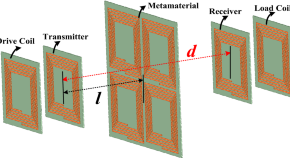
Wireless power transfer system with enhanced efficiency by using frequency reconfigurable metamaterial
- Dongyong Shan
- Haiyue Wang
- Junhua Zhang
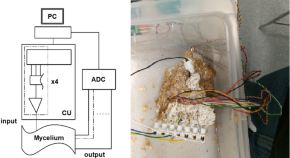
Mining logical circuits in fungi
- Nic Roberts
- Andrew Adamatzky
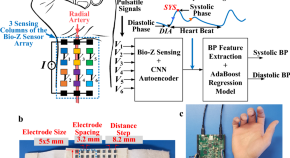
Cuffless blood pressure monitoring from a wristband with calibration-free algorithms for sensing location based on bio-impedance sensor array and autoencoder
- Bassem Ibrahim
- Roozbeh Jafari
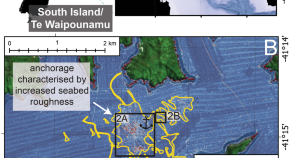
The footprint of ship anchoring on the seafloor
- Sally J. Watson
- Geoffroy Lamarche
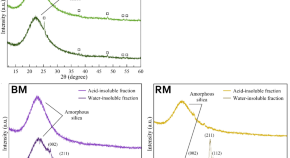
Dental tissue remineralization by bioactive calcium phosphate nanoparticles formulations
- Andrei Cristian Ionescu
- Lorenzo Degli Esposti
- Eugenio Brambilla
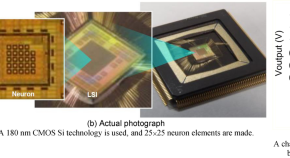
Neuromorphic chip integrated with a large-scale integration circuit and amorphous-metal-oxide semiconductor thin-film synapse devices
- Mutsumi Kimura
- Yuki Shibayama
- Yasuhiko Nakashima
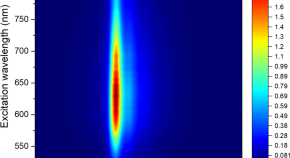
Near-infrared photoluminescence of Portland cement
- Sergei M. Bachilo
- R. Bruce Weisman
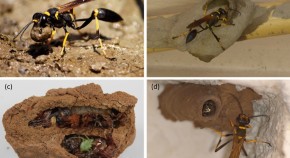
Investigating physical and mechanical properties of nest soils used by mud dauber wasps from a geotechnical engineering perspective
- Joon S. Park
- Noura S. Saleh
- Nathan P. Lord
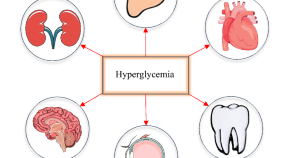
Control of blood glucose induced by meals for type-1 diabetics using an adaptive backstepping algorithm
- Rasoul Zahedifar
- Ali Keymasi Khalaji
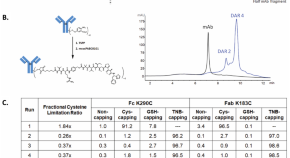
Cysteine metabolic engineering and selective disulfide reduction produce superior antibody-drug-conjugates
- Renée Procopio-Melino
- Frank W. Kotch
- Xiaotian Zhong
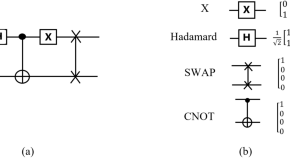
An optimizing method for performance and resource utilization in quantum machine learning circuits
- Tahereh Salehi
- Mariam Zomorodi
- Vahid Salari
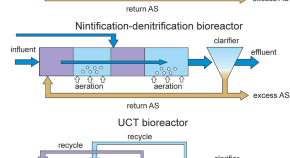
The structure of microbial communities of activated sludge of large-scale wastewater treatment plants in the city of Moscow
- Shahjahon Begmatov
- Alexander G. Dorofeev
- Andrey V. Mardanov

Characterization of 3D-printed PLA parts with different raster orientations and printing speeds
- Mohammad Reza Khosravani
- Filippo Berto
- Tamara Reinicke
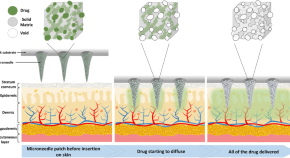
Hard polymeric porous microneedles on stretchable substrate for transdermal drug delivery
- Aydin Sadeqi
- Sameer Sonkusale
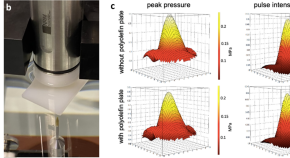
Ultrasounds induce blood–brain barrier opening across a sonolucent polyolefin plate in an in vitro isolated brain preparation
- Laura Librizzi
- Francesco Prada
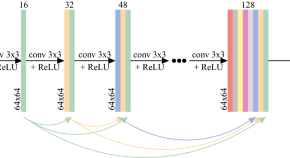
Deep learning-based single image super-resolution for low-field MR brain images
- M. L. de Leeuw den Bouter
- G. Ippolito
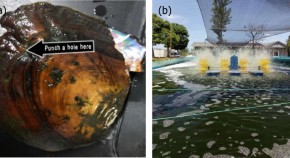
Effective treatment of aquaculture wastewater with mussel/microalgae/bacteria complex ecosystem: a pilot study
- Yongchao Li
- Weifeng Guo

Ultrasound-guided femoral approach for coronary angiography and interventions in the porcine model
- Grigorios Tsigkas
- Georgios Vasilagkos
- Periklis Davlouros
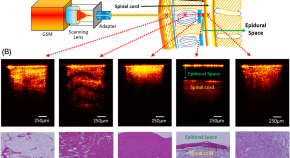
Epidural anesthesia needle guidance by forward-view endoscopic optical coherence tomography and deep learning
- Qinggong Tang
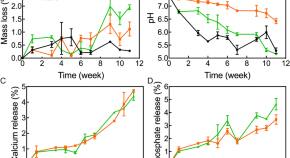
PLA/Hydroxyapatite scaffolds exhibit in vitro immunological inertness and promote robust osteogenic differentiation of human mesenchymal stem cells without osteogenic stimuli
- Marcela P. Bernardo
- Bruna C. R. da Silva
- Antonio Sechi
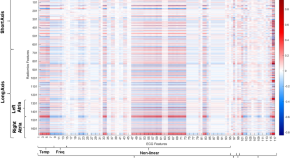
Atrial fibrillation prediction by combining ECG markers and CMR radiomics
- Esmeralda Ruiz Pujadas
- Zahra Raisi-Estabragh
- Karim Lekadir
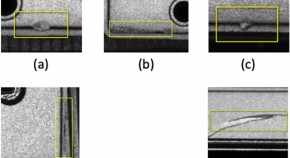
Small object detection method with shallow feature fusion network for chip surface defect detection
- Haixin Huang
- Xueduo Tang
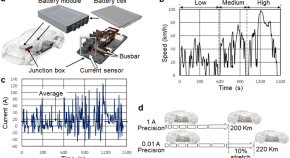
High-precision robust monitoring of charge/discharge current over a wide dynamic range for electric vehicle batteries using diamond quantum sensors
- Yuji Hatano
- Jaewon Shin
- Mutsuko Hatano

Driver drowsiness estimation using EEG signals with a dynamical encoder–decoder modeling framework
- Sadegh Arefnezhad
- James Hamet
- Ali Yousefi
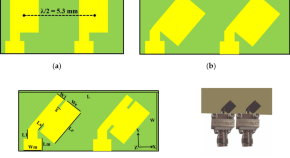
A compact two elements MIMO antenna for 5G communication
- Ashfaq Ahmad
- Dong-you Choi
- Sadiq Ullah
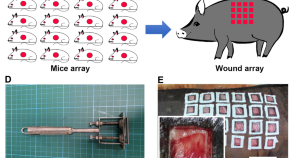
Skin wound healing assessment via an optimized wound array model in miniature pigs
- Ting-Yung Kuo
- Chao-Cheng Huang
- Lynn L. H. Huang
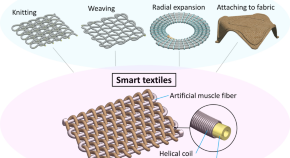
Smart textiles using fluid-driven artificial muscle fibers
- Phuoc Thien Phan
- Mai Thanh Thai
- Thanh Nho Do
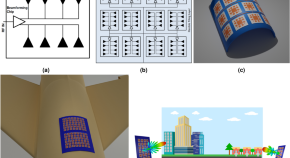
Tile-based massively scalable MIMO and phased arrays for 5G/B5G-enabled smart skins and reconfigurable intelligent surfaces
- Manos M. Tentzeris
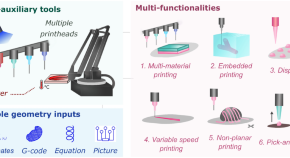
A hackable, multi-functional, and modular extrusion 3D printer for soft materials
- Iek Man Lei
- Yan Yan Shery Huang
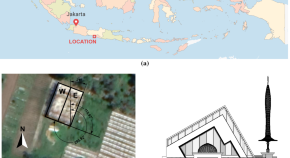
Techno-economic analysis of rooftop solar power plant implementation and policy on mosques: an Indonesian case study
- Fadhil Ahmad Qamar
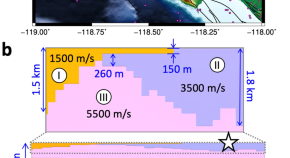
Seismic wave simulation using a 3D printed model of the Los Angeles Basin
- Sunyoung Park
- Changsoo Shin
- Robert W. Clayton
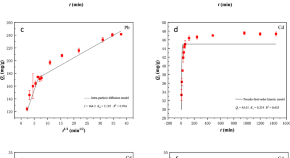
Banana stem and leaf biochar as an effective adsorbent for cadmium and lead in aqueous solution
- Gaoxiang Li
- Xinxian Long
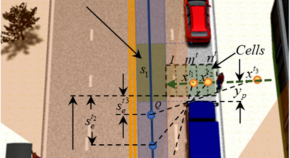
Potential risk assessment for safe driving of autonomous vehicles under occluded vision
- Denggui Wang
- Jincao Zhou
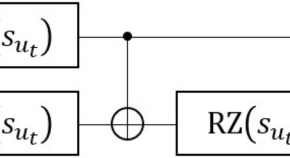
Natural quantum reservoir computing for temporal information processing
- Yudai Suzuki
- Naoki Yamamoto
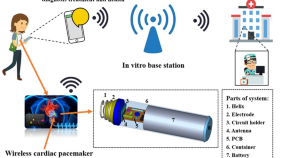
A compact and miniaturized implantable antenna for ISM band in wireless cardiac pacemaker system
- Li Gaosheng
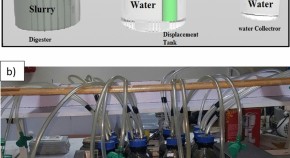
Experimental and simulation analysis of biogas production from beverage wastewater sludge for electricity generation
- Anteneh Admasu
- Wondwossen Bogale
- Yedilfana Setarge Mekonnen
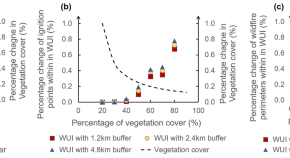
Mapping the wildland-urban interface in California using remote sensing data
- Tirtha Banerjee
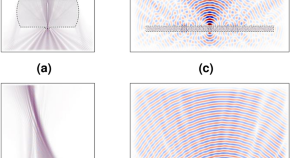
Design and implementation of a terahertz lens-antenna for a photonic integrated circuits based THz systems
- Shihab Al-Daffaie
- Alaa Jabbar Jumaah
- Thomas Kusserow
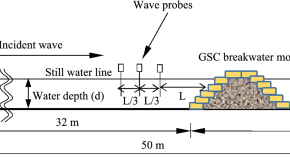
Preliminary investigation on stability and hydraulic performance of geotextile sand container breakwaters filled with sand and cement
- Kiran G. Shirlal
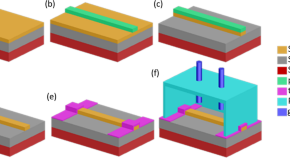
Detection of volatile organic compounds using mid-infrared silicon nitride waveguide sensors
- Junchao Zhou
- Diana Al Husseini
- Pao Tai Lin
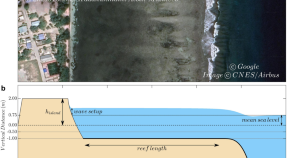
Coastal flooding and mean sea-level rise allowances in atoll island
- Angel Amores
- Marta Marcos
- Jochen Hinkel

Integration of life cycle assessment and life cycle costing for the eco-design of rubber products
- Yahong Dong
- Yating Zhao
- Guangyi Lin
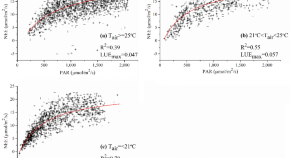
Estimating mangrove forest gross primary production by quantifying environmental stressors in the coastal area
- Yuhan Zheng
- Wataru Takeuchi
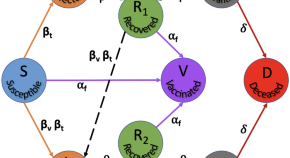
COVID-19 waves: variant dynamics and control
- Abhishek Dutta
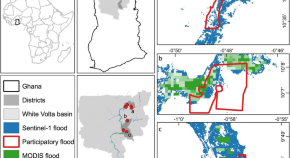
Increased flooded area and exposure in the White Volta river basin in Western Africa, identified from multi-source remote sensing data
- Chengxiu Li
- Jadunandan Dash
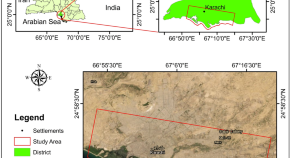
Sentinel-1A for monitoring land subsidence of coastal city of Pakistan using Persistent Scatterers In-SAR technique
- Muhammad Afaq Hussain
- Zhanlong Chen
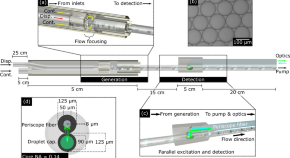
A Lab-in-a-Fiber optofluidic device using droplet microfluidics and laser-induced fluorescence for virus detection
- Helen E. Parker
- Sanghamitra Sengupta
- Fredrik Laurell
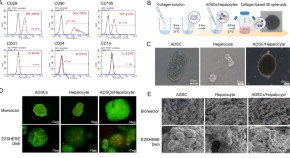
Transplantation of 3D adipose-derived stem cell/hepatocyte spheroids alleviates chronic hepatic damage in a rat model of thioacetamide-induced liver cirrhosis
- Yu Chiuan Wu
- Guan Xuan Wu
- Shyh Ming Kuo
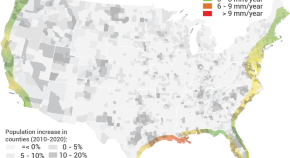
Hidden costs to building foundations due to sea level rise in a changing climate
- Mohamed A. Abdelhafez
- Bruce Ellingwood
- Hussam Mahmoud
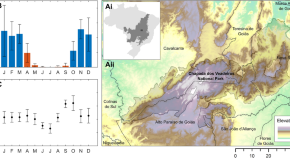
Mapping native and non-native vegetation in the Brazilian Cerrado using freely available satellite products
- Kennedy Lewis
- Fernanda de V. Barros
- Lucy Rowland
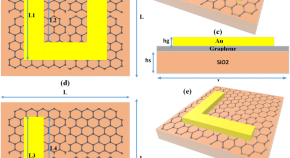
Graphene-based metasurface solar absorber design with absorption prediction using machine learning
- Juveriya Parmar
- Shobhit K. Patel
- Vijay Katkar
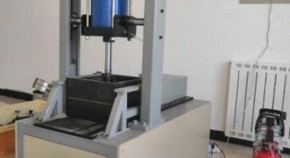
Experimental study of reasonable mesh size of geogrid reinforced tailings
- Lidong Liang
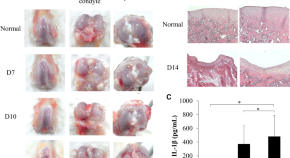

Stromal-vascular fraction and adipose-derived stem cell therapies improve cartilage regeneration in osteoarthritis-induced rats
- Wan-Ting Yang
- Chun-Yen Ke
- Ru-Ping Lee
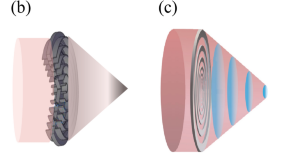
Planar ultrasonic transducer based on a metasurface piezoelectric ring array for subwavelength acoustic focusing in water
- Hyunggyu Choi
- Yong Tae Kim
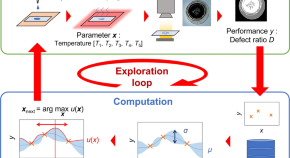
Sample-efficient parameter exploration of the powder film drying process using experiment-based Bayesian optimization
- Kohei Nagai
- Takayuki Osa
- Keisuke Nagato
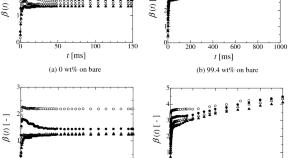
Predicting the splash of a droplet impinging on solid substrates
- Yukihiro Yonemoto
- Kanta Tashiro
- Tomoaki Kunugi
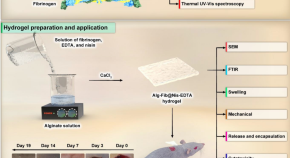
Designing a new alginate-fibrinogen biomaterial composite hydrogel for wound healing
- Marjan Soleimanpour
- Samaneh Sadat Mirhaji
- Ali Akbar Saboury
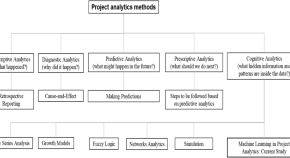
Machine learning in project analytics: a data-driven framework and case study
- Shahadat Uddin
- Stephen Ong
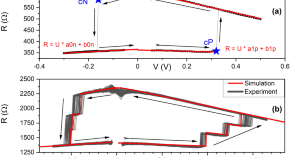
Multi-state MRAM cells for hardware neuromorphic computing
- Piotr Rzeszut
- Jakub Chȩciński
- Tomasz Stobiecki
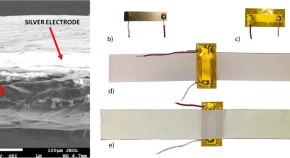
Flexible, self-powered sensors for estimating human head kinematics relevant to concussions
- Henry Dsouza
- Juan Pastrana
- Nelson Sepúlveda
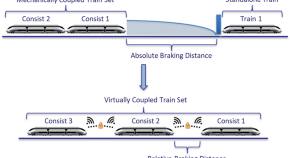
Technical feasibility analysis and introduction strategy of the virtually coupled train set concept
- Sebastian Stickel
- Moritz Schenker
- Javier Goikoetxea
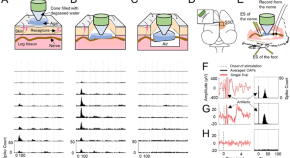
Ultrasound does not activate but can inhibit in vivo mammalian nerves across a wide range of parameters
- Hongsun Guo
- Sarah J. Offutt
- Hubert H. Lim
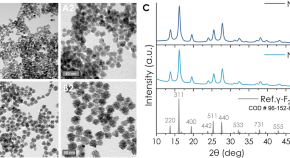
Iron oxide nanoflowers encapsulated in thermosensitive fluorescent liposomes for hyperthermia treatment of lung adenocarcinoma
- Maria Theodosiou
- Elias Sakellis
- Eleni Efthimiadou
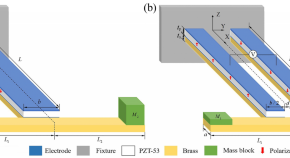
Piezoelectric energy harvester with double cantilever beam undergoing coupled bending-torsion vibrations by width-splitting method
- Jiawen Song
- Guihong Sun
- Xuejun Zheng
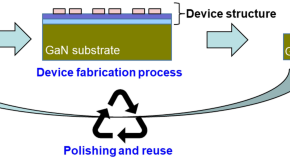
Laser slice thinning of GaN-on-GaN high electron mobility transistors
- Atsushi Tanaka
- Ryuji Sugiura
- Hiroshi Amano
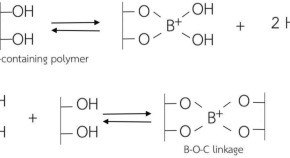
Superabsorbent cellulose-based hydrogels cross-liked with borax
- Supachok Tanpichai
- Farin Phoothong
- Anyaporn Boonmahitthisud
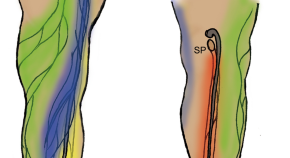
A new severity classification of lower limb secondary lymphedema based on lymphatic pathway defects in an indocyanine green fluorescent lymphography study
- Akira Shinaoka
- Kazuyo Kamiyama
- Yoshihiro Kimata
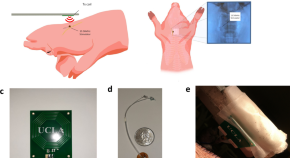
Vagus nerve stimulation using a miniaturized wirelessly powered stimulator in pigs
- Iman Habibagahi
- Mahmoud Omidbeigi
- Aydin Babakhani
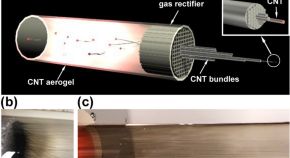
One step fabrication of aligned carbon nanotubes using gas rectifier
- Toshihiko Fujimori
- Daiji Yamashita
- Jun-ichi Fujita
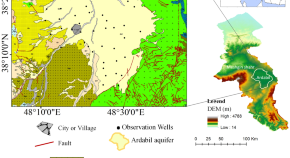
Use of InSAR data for measuring land subsidence induced by groundwater withdrawal and climate change in Ardabil Plain, Iran
- Zahra Ghorbani
- Ali Khosravi
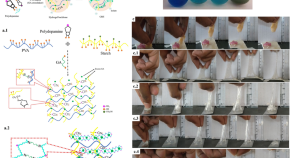
Bioinspired gelatin based sticky hydrogel for diverse surfaces in burn wound care
- Benu George
- Nitish Bhatia
- Suchithra T. V.
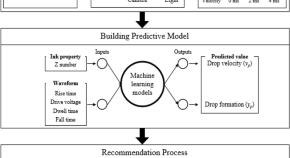
The design of an inkjet drive waveform using machine learning
- Seongju Kim
- Sungjune Jung
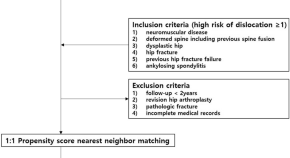
The usefulness of dual mobility cups in primary total hip arthroplasty patients at a risk of dislocation
- Nam Hoon Moon
- Won Chul Shin
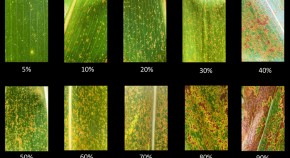
Phenomic data-facilitated rust and senescence prediction in maize using machine learning algorithms
- Aaron J. DeSalvio
- Thomas Isakeit
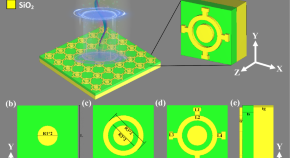
Polarization and angular insensitive bendable metamaterial absorber for UV to NIR range
- Md Mizan Kabir Shuvo
- Md Imran Hossain
- Mohammad Tariqul Islam
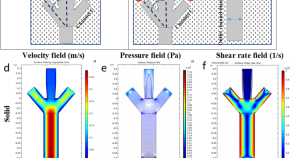
Numerical analysis on the effects of microfluidic-based bioprinting parameters on the microfiber geometrical outcomes
- Ahmadreza Zaeri
- Robert C. Chang
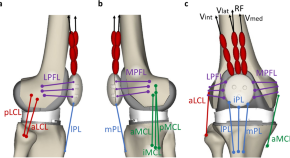
Kinematics and kinetics comparison of ultra-congruent versus medial-pivot designs for total knee arthroplasty by multibody analysis
- Giovanni Putame
- Mara Terzini
- Cristina Bignardi
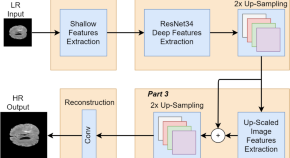
A new generative adversarial network for medical images super resolution
- Waqar Ahmad
- Shoaib Azmat
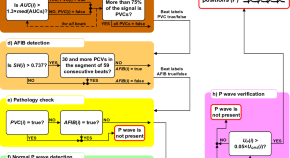
Reliable P wave detection in pathological ECG signals
- Lucie Saclova
- Andrea Nemcova
- Marina Ronzhina
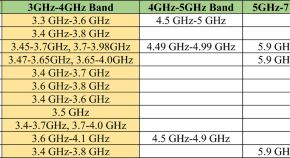
Gain and isolation enhancement of a wideband MIMO antenna using metasurface for 5G sub-6 GHz communication systems
- Md. Mhedi Hasan
- Md. Shabiul Islam
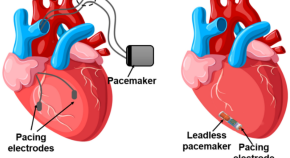
Design and implementation of compact dual-band conformal antenna for leadless cardiac pacemaker system
- Deepti Sharma
- Binod Kumar Kanaujia
- Ladislau Matekovits
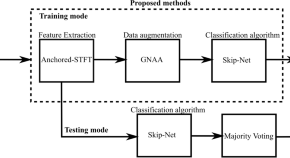
Enhancing the decoding accuracy of EEG signals by the introduction of anchored-STFT and adversarial data augmentation method
- Muhammad Saif-ur-Rehman
- Christian Klaes
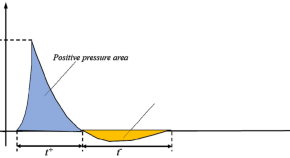
Propagation rules of shock waves in confined space under different initial pressure environments
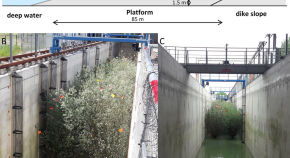
Wave attenuation through forests under extreme conditions
- Bregje K. van Wesenbeeck
- Guido Wolters
- Tjeerd J. Bouma
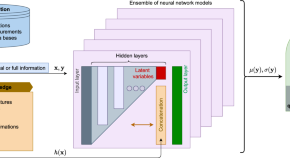
Multi-fidelity information fusion with concatenated neural networks
- Suraj Pawar
- Trond Kvamsdal
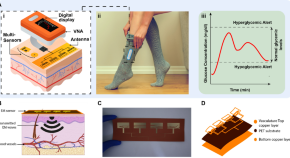
Wearable flexible body matched electromagnetic sensors for personalized non-invasive glucose monitoring
- Jessica Hanna
- Youssef Tawk
- Assaad A. Eid
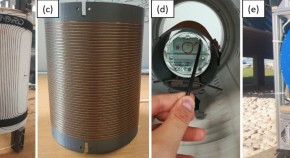
Portable magnetic resonance imaging of patients indoors, outdoors and at home
- Teresa Guallart-Naval
- José M. Algarín
- Joseba Alonso
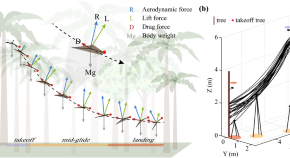
Combined effects of body posture and three-dimensional wing shape enable efficient gliding in flying lizards
- Pranav C. Khandelwal
- Tyson L. Hedrick
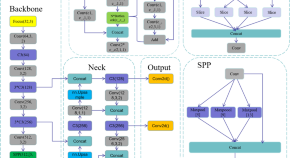
Road damage detection algorithm for improved YOLOv5
- Zhenyu Zhang
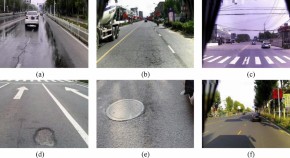
A pavement distresses identification method optimized for YOLOv5s
- Sudong Wang
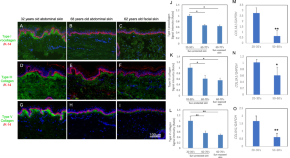
Regeneration of collagen fibrils at the papillary dermis by reconstructing basement membrane at the dermal–epidermal junction
- Shunsuke Iriyama
- Satoshi Amano
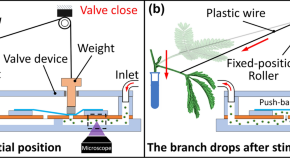
Bio-actuated microvalve in microfluidics using sensing and actuating function of Mimosa pudica
- Yusufu Aishan
- Shun-ichi Funano
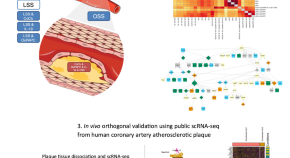
Uncovering emergent phenotypes in endothelial cells by clustering of surrogates of cardiovascular risk factors
- Iguaracy Pinheiro-de-Sousa
- Miriam H. Fonseca-Alaniz
- Jose E. Krieger
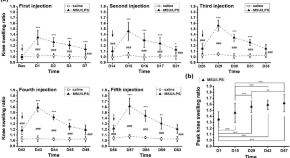
Degenerative joint disease induced by repeated intra-articular injections of monosodium urate crystals in rats as investigated by translational imaging
- Nathalie Accart
- Janet Dawson
- Nicolau Beckmann
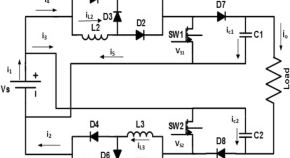
High gain DC/DC converter with continuous input current for renewable energy applications
- Arafa S. Mansour
- AL-Hassan H. Amer
- Mohamed S. Zaky
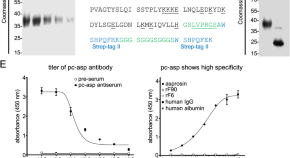
Sensitive asprosin detection in clinical samples reveals serum/saliva correlation and indicates cartilage as source for serum asprosin
- Yousef A. T. Morcos
- Steffen Lütke
- Gerhard Sengle
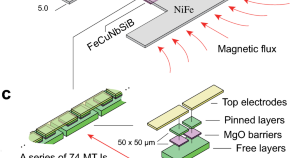
Scalp attached tangential magnetoencephalography using tunnel magneto-resistive sensors
- Akitake Kanno
- Nobukazu Nakasato
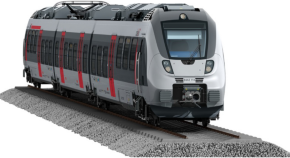
3D modelling and simulation of the dispersion of droplets and drops carrying the SARS-CoV-2 virus in a railway transport coach
- Patrick Armand
- Jérémie Tâche
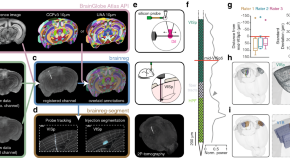
Accurate determination of marker location within whole-brain microscopy images
- Adam L. Tyson
- Mateo Vélez-Fort
- Troy W. Margrie
Quick links
- Explore articles by subject
- Guide to authors
- Editorial policies
Navigation Menu
Search code, repositories, users, issues, pull requests..., provide feedback.
We read every piece of feedback, and take your input very seriously.
Saved searches
Use saved searches to filter your results more quickly.
To see all available qualifiers, see our documentation .
- Notifications You must be signed in to change notification settings
Must-read papers on prompt-based tuning for pre-trained language models.
thunlp/PromptPapers
Folders and files.
| Name | Name | |||
|---|---|---|---|---|
| 132 Commits | ||||
Repository files navigation
Promptpapers.
We have released an open-source prompt-learning toolkit, check out OpenPrompt !
We strongly encourage the researchers that want to promote their fantastic work to the community to make pull request to update their paper's information! (See contributing details )
Effective adaptation of pre-trained models could be probed from different perspectives. Prompt-learning more focuses on the organization of training procedure and the unification of different tasks, while delta tuning (parameter efficient methods) provides another direction from the specific optimization of pre-trained models. Check DeltaPapers !
Must-read papers on prompt-based tuning for pre-trained language models. The paper list is mainly mantained by Ning Ding and Shengding Hu . Watch this repository for the latest updates!
Keywords Convention
Improvements, specializations, other contributors, contributing to this paper list, introduction.
This is a paper list about prompt-based tuning for large-scale pre-trained language models. Different from traditional fine-tuning that uses an explicit classifier, prompt-based tuning directly uses the pre-trained models to conduct the pre-training tasks for classification or regression.
This section contains the papers that overview the general trends in recent natural language processing with big (pretrained) models.
OpenPrompt: An Open-source Framework for Prompt-learning. Preprint.
Ning Ding, Shengding Hu, Weilin Zhao, Yulin Chen, Zhiyuan Liu, Hai-Tao Zheng, Maoson Sun [ pdf ] [ project ], 2021.11
Pre-Trained Models: Past, Present and Future. Preprint.
Xu Han, Zhengyan Zhang, Ning Ding, Yuxian Gu, Xiao Liu, Yuqi Huo, Jiezhong Qiu, Yuan Yao, Ao Zhang, Liang Zhang, Wentao Han, Minlie Huang, Qin Jin, Yanyan Lan, Yang Liu, Zhiyuan Liu, Zhiwu Lu, Xipeng Qiu, Ruihua Song, Jie Tang, Ji-Rong Wen, Jinhui Yuan, Wayne Xin Zhao, Jun Zhu. [ pdf ], 2021.6
Pre-train, Prompt, and Predict: A Systematic Survey of Prompting Methods in Natural Language Processing. Preprint.
Liu, Pengfei, Weizhe Yuan, Jinlan Fu, Zhengbao Jiang, Hiroaki Hayashi, and Graham Neubig. [ pdf ] [ project ], 2021.7
Paradigm Shift in Natural Language Processing. Machine Intelligence Research.
Tianxiang Sun, Xiangyang Liu, Xipeng Qiu, Xuanjing Huang [ pdf ] [ project ], 2021.9
This section contains the pilot works that might contributes to the prevalence of prompt learning paradigm.
Neil Houlsby, Andrei Giurgiu, Stanislaw Jastrzebski, Bruna Morrone, Quentin de Laroussilhe, Andrea Gesmundo, Mona Attariyan, Sylvain Gelly . [ pdf ], [ project ], 2019.6
Fabio Petroni, Tim Rocktaschel, Patrick Lewis, Anton Bakhtin, Yuxiang Wu, Alexander H. Miller, Sebastian Riedel. [ pdf ], [ project ] , 2019.9
Zhengbao Jiang, Frank F. Xu, Jun Araki, Graham Neubig . [ pdf ], [ project ], 2019.11
Tom B. Brown, Benjamin Mann, Nick Ryder, Melanie Subbiah, Jared Kaplan, Prafulla Dhariwal, Arvind Neelakantan, Pranav Shyam, Girish Sastry, Amanda Askell, Sandhini Agarwal, Ariel Herbert-Voss, Gretchen Krueger, Tom Henighan, Rewon Child, Aditya Ramesh, Daniel M. Ziegler, Jeffrey Wu, Clemens Winter, Christopher Hesse, Mark Chen, Eric Sigler, Mateusz Litwin, Scott Gray, Benjamin Chess, Jack Clark, Christopher Berner, Sam McCandlish, Alec Radford, Ilya Sutskever, Dario Amodei. [ pdf ], [ website ], 2020.5
Yulong Chen, Yang Liu, Li Dong, Shuohang Wang, Chenguang Zhu, Michael Zeng, Yue Zhang [ pdf ], 2022.02
This section contains the exploration on the basic aspects of prompt tuning, such as template, verbalizer, training paradigms, etc.
Timo Schick, Hinrich Schütze. [ pdf ], [ project ], 2020.1
Timo Schick, Hinrich Schütze. [ pdf ], [ project ], 2020.9
Taylor Shin, Yasaman Razeghi, Robert L. Logan IV, Eric Wallace, Sameer Singh. [ pdf ], [ website ], 2020.10
Timo Schick, Helmut Schmid, Hinrich Schütze. [ pdf ], [ project ], 2020.12
Tianyu Gao, Adam Fisch, Danqi Chen. [ pdf ], [ project ], 2020.12
Xiang Lisa Li, Percy Liang. [ pdf ], [ project ], 2021.1
Laria Reynolds, Kyle McDonell. [ pdf ], 2021.2
Derek Tam, Rakesh R Menon, Mohit Bansal, Shashank Srivastava, Colin Raffel. [pdf] , 2021.3
Xiao Liu, Yanan Zheng, Zhengxiao Du, Ming Ding, Yujie Qian, Zhilin Yang, Jie Tang . [ pdf ], [ project ], 2021.3
Brian Lester, Rami Al-Rfou, Noah Constant . [ pdf ], [ project ], 2021.4
Guanghui Qin, Jason Eisner. [ pdf ][ project ], 2021.4
Zexuan Zhong, Dan Friedman, Danqi Chen. [ pdf ], [ project ], 2021.4
Robert L. Logan IV, Ivana Balažević, Eric Wallace, Fabio Petroni, Sameer Singh, Sebastian Riedel . [ pdf ], 2021.6
Karen Hambardzumyan, Hrant Khachatrian, Jonathan May. [ pdf ], [ project ], 2021.6
Xu Han, Weilin Zhao, Ning Ding, Zhiyuan Liu, Maosong Sun. [ pdf ], 2021.5
Yi Sun*, Yu Zheng*, Chao Hao, Hangping Qiu , [ pdf ], [ project ], 2021.9
ason Wei, Maarten Bosma, Vincent Y. Zhao, Kelvin Guu, Adams Wei Yu, Brian Lester, Nan Du, Andrew M. Dai, Quoc V. Le. [ pdf ], 2021.9
Yuxian Gu*, Xu Han*, Zhiyuan Liu, Minlie Huang. [ pdf ], 2021.9
Ningyu Zhang, Luoqiu Li, Xiang Chen, Shumin Deng, Zhen Bi, Chuanqi Tan, Fei Huang, Huajun Chen. [ pdf ], [ project ], 2021.10
Victor Sanh, Albert Webson, Colin Raffel, Stephen H. Bach, Lintang Sutawika, Zaid Alyafeai, Antoine Chaffin, Arnaud Stiegler, Teven Le Scao, Arun Raja, Manan Dey, M Saiful Bari, Canwen Xu, Urmish Thakker, Shanya Sharma Sharma, Eliza Szczechla, Taewoon Kim, Gunjan Chhablani, Nihal Nayak, Debajyoti Datta, Jonathan Chang, Mike Tian-Jian Jiang, Han Wang, Matteo Manica, Sheng Shen, Zheng Xin Yong, Harshit Pandey, Rachel Bawden, Thomas Wang, Trishala Neeraj, Jos Rozen, Abheesht Sharma, Andrea Santilli, Thibault Fevry, Jason Alan Fries, Ryan Teehan, Stella Biderman, Leo Gao, Tali Bers, Thomas Wolf, Alexander M. Rush. [ pdf ], 2021.10
Xiao Liu, Kaixuan Ji, Yicheng Fu, Zhengxiao Du, Zhilin Yang, Jie Tang [ pdf ], [ project ], 2021.10
Tianxiang Sun, Yunfan Shao, Hong Qian, Xuanjing Huang, Xipeng Qiu [ pdf ], [ project ], 2022.1
Shizhe Diao, Xuechun Li, Yong Lin, Zhichao Huang, Tong Zhang [ pdf ], 2022.1
Zhoujun Cheng*, Tianbao Xie*, Peng Shi, Chengzu Li, Rahul Nadkarni, Yushi Hu, Caiming Xiong, Dragomir Radev, Mari Ostendorf, Luke Zettlemoyer, Noah A. Smith, Tao Yu [ pdf ], [ project ], [ website ], 2022.10
This section contains the analysis of prompt learning methods, including but not limited to why does prompt learning work, various properties of prompt learning methods, limilation of prompt learning methods.
Jiachang Liu, Dinghan Shen, Yizhe Zhang, Bill Dolan, Lawrence Carin, Weizhu Chen . [ pdf ] 2021.1
Teven Le Scao, Alexander M. Rush. [ pdf ], [ project ], 2021.3
Ari Holtzman, Peter West, Vered Schwartz, Yejin Choi, Luke Zettlemoyer. [ pdf ][ project ], 2021.4
Natural Instructions: Benchmarking Generalization to New Tasks from Natural Language Instructions. Preprint.
Swaroop Mishra, Daniel Khashabi, Chitta Baral, Hannaneh Hajishirzi. [ pdf ], [ project ], 2021.4
Yao Lu, Max Bartolo, Alastair Moore, Sebastian Riedel, Pontus Stenetorp . [ pdf ] 2021.4
Ruiqi Zhong, Kristy Lee*, Zheng Zhang*, Dan Klein . [ pdf ] 2021.4
Ethan Perez, Douwe Kiela, Kyunghyun Cho . [ pdf ], [ project ] 2021.5
Colin Wei Sang Michael Xie Tengyu Ma [ pdf ], 2021.6
Albert Webson, Ellie Pavlick. [ pdf ], [ project ] 2021.9
Prasetya Ajie Utama, Nafise Sadat Moosavi, Victor Sanh, Iryna Gurevych. [ pdf ], 2021.9
Junxian He, Chunting Zhou, Xuezhe Ma, Taylor Berg-Kirkpatrick, Graham Neubig. [ pdf ], 2021.10
Yujia Qin, Xiaozhi Wang, Yusheng Su, Yankai Lin, Ning Ding, Zhiyuan Liu, Juanzi Li, Lei Hou,Peng Li, Maosong Sun, Jie Zhou [ pdf ]
Lei Xu, Yangyi Chen, Ganqu Cui, Hongcheng Gao, Zhiyuan Liu [ pdf ], [ project ]
Sewon Min, Xinxi Lyu, Ari Holtzman, Mikel Artetxe, Mike Lewis, Hannaneh Hajishirzi, Luke Zettlemoyer [ pdf ], [ project ]
Weng Lam Tam, Xiao Liu, Kaixuan Ji, Lilong Xue, Yuxiao Dong, Jiahua Liu, Maodi Hu, Jie Tang [ pdf ] [ project ]
Fábio Perez, Ian Ribeiro [ pdf ] [ project ], 2022.11
This section contains the improvement of the basic prompt tuning methods, include but not limitedd to using additional resources to improving the performances, making up the shortcomings of previous work or conducting prompt tuning in unsual ways.
Tony Z. Zhao, Eric Wallace, Shi Feng, Dan Klein, Sameer Singh. [ pdf ], [ project ], 2021.2
Han Guo, Bowen Tan, Zhengzhong Liu, Eric P. Xing, Zhiting Hu. [ pdf ], 2021.6
Shengding Hu, Ning Ding, Huadong Wang, Zhiyuan Liu, Juanzi Li, Maosong Sun . [ pdf ], [ project ], 2021.8
Sewon Min, Mike Lewis, Hannaneh Hajishirzi, Luke Zettlemoyer. [ pdf ], 2021.8
Ruiqi Zhong, Kristy Lee* Zheng Zhang*, Dan Klein. [ pdf ], 2021.9
Yiming Chen, Yan Zhang, Chen Zhang, Grandee Lee, Ran Cheng, Haizhou Li. [ pdf ], 2021.10
Yaqing Wang, Subhabrata Mukherjee, Xiaodong Liu, Jing Gao, Ahmed Hassan Awadallah, Jianfeng Gao. [ pdf ], 2021.10
Ganqu Cui, Shengding Hu, Ning Ding, Longtao Huang, Zhiyuan Liu . [ pdf ], [ project ], 2022.3
Tianxiang Sun, Zhengfu He, Hong Qian, Xuanjing Huang, Xipeng Qiu [ pdf ] [ project ], 2022.5
This section contains the prompt learning methods designed for various NLP task.
Gregor Betz, Kyle Richardson, Christian Voigt. [ pdf ] 2021.3
Kang Min Yoo, Dongju Park, Jaewook Kang, Sang-Woo Lee, Woomyeong Park. [ pdf ] 2021.4
Richard Shin, Christopher H. Lin, Sam Thomson, Charles Chen, Subhro Roy, Emmanouil Antonios Platanios, Adam Pauls, Dan Klein, Jason Eisner, Benjamin Van Durme. [pdf] 2021.4
Oscar Sainz, Oier Lopez de Lacalle, Gorka Labaka, Ander Barrena, Eneko Agirre. [ pdf ], 2021.4
Eyal Ben-David, Nadav Oved, Roi Reichart. [ pdf ][ project ] 2021.5
Ning Ding, Yulin Chen, Xu Han, Guangwei Xu, Pengjun Xie, Hai-Tao Zheng, Zhiyuan Liu, Juanzi Li, Hong-Gee Kim [ pdf ],2021.8
Xiang Chen, Xin Xie, Ningyu Zhang, Jiahuan Yan, Shumin Deng, Chuanqi Tan, Fei Huang, Luo Si, Huajun Chen. . [ pdf ], [ project ], 2021.9
Chujie Zheng, Minlie Huang. [ pdf ], 2021.9
Chengxi Li, Feiyu Gao, Jiajun Bu, Lu Xu, Xiang Chen, Yu Gu, Zirui Shao, Qi Zheng, Ningyu Zhang, Yongpan Wang, Zhi Yu. [ pdf ] 2021.9
Ruotian Ma*, Xin Zhou*, Tao Gui, Yiding Tan, Qi Zhang, Xuanjing Huang. [ pdf ], 2021.9
Kaiyang Zhou, Jingkang Yang, Chen Change Loy, and Ziwei Liu. [ pdf ], 2021.9
Yuan Yao*, Ao Zhang*, Zhengyan Zhang, Zhiyuan Liu, Tat-Seng Chua, Maosong Sun. [ pdf ], 2021.10
Zhixing Tan, Xiangwen Zhang, Shuo Wang, Yang Liu. [ pdf ], 2021.10
Andrea Madotto, Zhaojiang Lin, Genta Indra Winata, Pascale Fung [ pdf ], 2021.10
Jordan Clive, Kris Cao, Marek Rei. [ pdf ], 2021.10
Nathan Schucher, Siva Reddy, Harm de Vries. [ pdf ], 2021.10
Woojeong Jin, Yu Cheng, Yelong Shen, Weizhu Chen, Xiang Ren. [ pdf ]
Xiang Chen, Lei Li, Shumin Deng, Chuanqi Tan, Changliang Xu, Fei Huang, Luo Si, Huajun Chen, Ningyu Zhang. [ pdf ], [ project ], 2021.8
Tianbao Xie*, Chen Henry Wu*, Peng Shi, Ruiqi Zhong, Torsten Scholak, Michihiro Yasunaga, Chien-Sheng Wu, Ming Zhong, Pengcheng Yin, Sida I. Wang, Victor Zhong, Bailin Wang, Chengzu Li, Connor Boyle, Ansong Ni, Ziyu Yao, Dragomir Radev, Caiming Xiong, Lingpeng Kong, Rui Zhang, Noah A. Smith, Luke Zettlemoyer, Tao Yu. [ pdf ], [ project ], [ website ], 2022.1
Hongbin Ye, Ningyu Zhang, Shumin Deng, Xiang Chen, Hui Chen, Feiyu Xiong, Xi Chen, Huajun Chen. [ pdf ], 2022.1
Zifeng Wang, Zizhao Zhang, Chen-Yu Lee, Han Zhang, Ruoxi Sun, Xiaoqi Ren, Guolong Su, Vincent Perot, Jennifer Dy, Tomas Pfister. [ pdf ], [ project ], 2021.12
Xiang Chen, Lei Li, Ningyu Zhang, Chuanqi Tan, Fei Huang, Luo Si, Huajun Chen. [ pdf ], [ project ], 2022.5
Xiang Chen, Ningyu Zhang, Lei Li, Yunzhi Yao, Shumin Deng, Chuanqi Tan, Fei Huang, Luo Si, Huajun Chen. [ pdf ], [ project ], 2022.5
Jason Wei, Xuezhi Wang, Dale Schuurmans, Maarten Bosma, Ed Chi, Quoc Le, Denny Zhou. [ pdf ]
Xuezhi Wang, Jason Wei, Dale Schuurmans, Quoc Le, Ed Chi, Sharan Narang, Aakanksha Chowdhery, Denny Zhou. [ pdf ]
Takeshi Kojima, Shixiang Shane Gu, Machel Reid, Yutaka Matsuo, Yusuke Iwasawa. [ pdf ]
Denny Zhou, Nathanael Schärli, Le Hou, Jason Wei, Nathan Scales, Xuezhi Wang, Dale Schuurmans, Olivier Bousquet, Quoc Le, Ed Chi. [ pdf ]
Jaehun Jung, Lianhui Qin, Sean Welleck, Faeze Brahman, Chandra Bhagavatula, Ronan Le Bras, Yejin Choi [ pdf ]
Yifei Li, Zeqi Lin, Shizhuo Zhang, Qiang Fu, Bei Chen, Jian-Guang Lou, Weizhu Chen [ pdf ]
Nihal V. Nayak*, Peilin Yu*, Stephen H. Bach [ pdf ], [ project ]
Xiang Chen, Lei Li, Ningyu Zhang, Xiaozhuan Liang, Shumin Deng, Chuanqi Tan, Fei Huang, Luo Si, Huajun Chen. [ pdf ], [ project ], 2022.5
Cem Anil, Yuhuai Wu, Anders Andreassen, Aitor Lewkowycz, Vedant Misra, Vinay Ramasesh, Ambrose Slone, Guy Gur-Ari, Ethan Dyer, Behnam Neyshabur [ pdf ]
Simran Arora, Avanika Narayan, Mayee F. Chen, Laurel Orr, Neel Guha, Kush Bhatia, Ines Chami, Frederic Sala, Christopher Ré [ pdf ]
Ofir Press, Muru Zhang, Sewon Min, Ludwig Schmidt, Noah A. Smith, Mike Lewis [ pdf ]
Mingkai Deng, Jianyu Wang, Cheng-Ping Hsieh, Yihan Wang, Han Guo, Tianmin Shu, Meng Song, Eric P. Xing, Zhiting Hu [ pdf ]
Shuofei Qiao, Yixin Ou, Ningyu Zhang, Xiang Chen, Yunzhi Yao, Shumin Deng, Chuanqi Tan, Fei Huang, Huajun Chen [ pdf ]
Contribution
We thank Yujia Qin , Xiachong Feng , Chenglei Si , Tianbao Xie , Muhtasham Oblokulov for the paper recommendation.
- First, think about which category the work should belong to.
- Second, use the same format as the others to discribe the work. Note that there should be an empty line between the title and the authors list, and take care of the indentation.
- Then, add keywords tags . Add the pdf link of the paper. If it is an arxiv publication, we prefer /abs/ format to /pdf/ format.
Don't worry if you put all these wrong, we will fix them for you. Just contribute and promote your awesome work here!
If you recommended a work that wasn't yours, you will be added to the contributor list (be sure to provide your information in other contributors ).
Contributors 19
The following are the latest papers (sorted by release date) on prompt engineering for large language models (LLMs). We update the list of papers on a daily/weekly basis.
- Prompt Design and Engineering: Introduction and Advanced Methods (opens in a new tab) (January 2024)
- A Survey on Hallucination in Large Language Models: Principles,Taxonomy, Challenges, and Open Questions (opens in a new tab) (November 2023)
- An RL Perspective on RLHF, Prompting, and Beyond (opens in a new tab) (October 2023)
- Few-shot Fine-tuning vs. In-context Learning: A Fair Comparison and Evaluation (opens in a new tab) (May 2023)
- Jailbreaking ChatGPT via Prompt Engineering: An Empirical Study (opens in a new tab) (May 2023)
- Harnessing the Power of LLMs in Practice: A Survey on ChatGPT and Beyond (opens in a new tab) (April 2023)
- Tool Learning with Foundation Models (opens in a new tab) (April 2023)
- One Small Step for Generative AI, One Giant Leap for AGI: A Complete Survey on ChatGPT in AIGC Era (opens in a new tab) (April 2023)
- A Bibliometric Review of Large Language Models Research from 2017 to 2023 (opens in a new tab) (April 2023)
- A Survey of Large Language Models (opens in a new tab) (April 2023)
- Nature Language Reasoning, A Survey (opens in a new tab) (March 2023)
- Augmented Language Models: a Survey (opens in a new tab) (February 2023)
- A Survey for In-context Learning (opens in a new tab) (December 2022)
- Towards Reasoning in Large Language Models: A Survey (opens in a new tab) (December 2022)
- Reasoning with Language Model Prompting: A Survey (opens in a new tab) (December 2022)
- Emergent Abilities of Large Language Models (opens in a new tab) (June 2022)
- A Taxonomy of Prompt Modifiers for Text-To-Image Generation (opens in a new tab) (April 2022)
- Pre-train, Prompt, and Predict: A Systematic Survey of Prompting Methods in Natural Language Processing (opens in a new tab) (July 2021)
- Enhancing Zero-Shot Chain-of-Thought Reasoning in Large Language Models through Logic (opens in a new tab) (February 2024)
- Principled Instructions Are All You Need for Questioning LLaMA-1/2, GPT-3.5/4 (opens in a new tab) (December 2023)
- Walking Down the Memory Maze: Beyond Context Limit through Interactive Reading (opens in a new tab) (October 2023)
- Large Language Models as Analogical Reasoners (opens in a new tab) (October 2023)
- LLMLingua: Compressing Prompts for Accelerated Inference of Large Language Models (opens in a new tab) (October 2023)
- Query-Dependent Prompt Evaluation and Optimization with Offline Inverse RL (opens in a new tab) (September 2023)
- Chain-of-Verification Reduces Hallucination in Large Language Models (opens in a new tab) (September 2023)
- Connecting Large Language Models with Evolutionary Algorithms Yields Powerful Prompt Optimizers (opens in a new tab) (September 2023)
- From Sparse to Dense: GPT-4 Summarization with Chain of Density Prompting (opens in a new tab) (September 2023)
- Re-Reading Improves Reasoning in Language Models (opens in a new tab) (September 2023)
- Graph of Thoughts: Solving Elaborate Problems with Large Language Models (opens in a new tab) (August 2023)
- Skeleton-of-Thought: Large Language Models Can Do Parallel Decoding (opens in a new tab) (July 2023)
- Focused Prefix Tuning for Controllable Text Generation (opens in a new tab) (June 2023)
- Exploring Lottery Prompts for Pre-trained Language Models (opens in a new tab) (May 2023)
- Less Likely Brainstorming: Using Language Models to Generate Alternative Hypotheses (opens in a new tab) (May 2023)
- Let's Verify Step by Step (opens in a new tab) (May 2023)
- Universality and Limitations of Prompt Tuning (opens in a new tab) (May 2023)
- MultiTool-CoT: GPT-3 Can Use Multiple External Tools with Chain of Thought Prompting (opens in a new tab) (May 2023)
- PEARL: Prompting Large Language Models to Plan and Execute Actions Over Long Documents (opens in a new tab) (May 2023)
- Reasoning with Language Model is Planning with World Model (opens in a new tab) (May 2023)
- Self-Critique Prompting with Large Language Models for Inductive Instructions (opens in a new tab) (May 2023)
- Better Zero-Shot Reasoning with Self-Adaptive Prompting (opens in a new tab) (May 2023)
- Hierarchical Prompting Assists Large Language Model on Web Navigation (opens in a new tab) (May 2023)
- Interactive Natural Language Processing (opens in a new tab) (May 2023)
- Can We Edit Factual Knowledge by In-Context Learning? (opens in a new tab) (May 2023)
- In-Context Learning of Large Language Models Explained as Kernel Regression (opens in a new tab) (May 2023)
- Plan-and-Solve Prompting: Improving Zero-Shot Chain-of-Thought Reasoning by Large Language Models (opens in a new tab) (May 2023)
- Meta-in-context learning in large language models (opens in a new tab) (May 2023)
- Let's Sample Step by Step: Adaptive-Consistency for Efficient Reasoning with LLMs (opens in a new tab) (May 2023)
- Post Hoc Explanations of Language Models Can Improve Language Models (opens in a new tab) (May 2023)
- Compress, Then Prompt: Improving Accuracy-Efficiency Trade-off of LLM Inference with Transferable Prompt (opens in a new tab) (May 2023)
- TreePrompt: Learning to Compose Tree Prompts for Explainable Visual Grounding (opens in a new tab) (May 2023)
- TELeR: A General Taxonomy of LLM Prompts for Benchmarking Complex Tasks (opens in a new tab) (May 2023)
- Efficient Prompting via Dynamic In-Context Learning (opens in a new tab) (May 2023)
- The Web Can Be Your Oyster for Improving Large Language Models (opens in a new tab) (May 2023)
- Flatness-Aware Prompt Selection Improves Accuracy and Sample Efficiency (opens in a new tab) (May 2023)
- Tree of Thoughts: Deliberate Problem Solving with Large Language Models (opens in a new tab) (May 2023)
- ZeroPrompt: Streaming Acoustic Encoders are Zero-Shot Masked LMs (opens in a new tab) (May 2023)
- Chain-of-Symbol Prompting Elicits Planning in Large Langauge Models (opens in a new tab) (May 2023)
- CooK: Empowering General-Purpose Language Models with Modular and Collaborative Knowledge (opens in a new tab) (May 2023)
- What In-Context Learning "Learns" In-Context: Disentangling Task Recognition and Task Learning (opens in a new tab) (May 2023)
- Reprompting: Automated Chain-of-Thought Prompt Inference Through Gibbs Sampling (opens in a new tab) (May 2023)
- Satisfiability-Aided Language Models Using Declarative Prompting (opens in a new tab) (May 2023)
- Pre-Training to Learn in Context (opens in a new tab) (May 2023)
- Boosted Prompt Ensembles for Large Language Models (opens in a new tab) (April 2023)
- Global Prompt Cell: A Portable Control Module for Effective Prompt (opens in a new tab) (April 2023)
- Why think step-by-step? Reasoning emerges from the locality of experience (opens in a new tab) (April 2023)
- Revisiting Automated Prompting: Are We Actually Doing Better? (opens in a new tab) (April 2023)
- REFINER: Reasoning Feedback on Intermediate Representations (opens in a new tab) (April 2023)
- Reflexion: an autonomous agent with dynamic memory and self-reflection (opens in a new tab) (March 2023)
- CAMEL: Communicative Agents for "Mind" Exploration of Large Scale Language Model Society (opens in a new tab) (March 2023)
- Self-Refine: Iterative Refinement with Self-Feedback (opens in a new tab) (March 2023)
- kNN Prompting: Beyond-Context Learning with Calibration-Free Nearest Neighbor Inference (opens in a new tab) (March 2023)
- Visual-Language Prompt Tuning with Knowledge-guided Context Optimization (opens in a new tab) (March 2023)
- Fairness-guided Few-shot Prompting for Large Language Models (opens in a new tab) (March 2023)
- Context-faithful Prompting for Large Language Models (opens in a new tab) (March 2023)
- Is Prompt All You Need? No. A Comprehensive and Broader View of Instruction Learning (opens in a new tab) (March 2023)
- UPRISE: Universal Prompt Retrieval for Improving Zero-Shot Evaluation (opens in a new tab) (March 2023)
- Model-tuning Via Prompts Makes NLP Models Adversarially Robust (opens in a new tab) (March 2023)
- Structure Pretraining and Prompt Tuning for Knowledge Graph Transfer (opens in a new tab) (March 2023)
- CoTEVer: Chain of Thought Prompting Annotation Toolkit for Explanation Verification (opens in a new tab) (March 2023)
- Larger language models do in-context learning differently (opens in a new tab) (March 2023)
- OpenICL: An Open-Source Framework for In-context Learning (opens in a new tab) (March 2023)
- Dynamic Prompting: A Unified Framework for Prompt Tuning (opens in a new tab) (March 2023)
- ART: Automatic multi-step reasoning and tool-use for large language models (opens in a new tab) (March 2023)
- Multitask Prompt Tuning Enables Parameter-Efficient Transfer Learning (opens in a new tab) (March 2023)
- Effectiveness of Data Augmentation for Prefix Tuning with Limited Data (opens in a new tab) (March 2023)
- Mixture of Soft Prompts for Controllable Data Generation (opens in a new tab) (March 2023)
- Prompt, Generate, then Cache: Cascade of Foundation Models makes Strong Few-shot Learners (opens in a new tab) (March 2023)
- How Robust is GPT-3.5 to Predecessors? A Comprehensive Study on Language Understanding Tasks (opens in a new tab) (March 2023)
- Can ChatGPT Understand Too? A Comparative Study on ChatGPT and Fine-tuned BERT (opens in a new tab) (February 2023)
- EvoPrompting: Language Models for Code-Level Neural Architecture Search (opens in a new tab) (February 2023)
- In-Context Instruction Learning (opens in a new tab) (February 2023)
- Chain of Hindsight Aligns Language Models with Feedback (opens in a new tab) (February 2023)
- Language Is Not All You Need: Aligning Perception with Language Models (opens in a new tab) (February 2023)
- Automatic Prompt Augmentation and Selection with Chain-of-Thought from Labeled Data (opens in a new tab) (February 2023)
- Active Prompting with Chain-of-Thought for Large Language Models (opens in a new tab) (February 2023)
- More than you've asked for: A Comprehensive Analysis of Novel Prompt Injection Threats to Application-Integrated Large Language Models (opens in a new tab) (February 2023)
- A Prompt Pattern Catalog to Enhance Prompt Engineering with ChatGPT (opens in a new tab) (February 2023)
- Guiding Large Language Models via Directional Stimulus Prompting (opens in a new tab) (February 2023)
- How Does In-Context Learning Help Prompt Tuning? (opens in a new tab) (February 2023)
- Scalable Prompt Generation for Semi-supervised Learning with Language Models (opens in a new tab) (February 2023)
- Bounding the Capabilities of Large Language Models in Open Text Generation with Prompt Constraints (opens in a new tab) (February 2023)
- À-la-carte Prompt Tuning (APT): Combining Distinct Data Via Composable Prompting (opens in a new tab) (February 2023)
- GraphPrompt: Unifying Pre-Training and Downstream Tasks for Graph Neural Networks (opens in a new tab) (February 2023)
- The Capacity for Moral Self-Correction in Large Language Models (opens in a new tab) (February 2023)
- SwitchPrompt: Learning Domain-Specific Gated Soft Prompts for Classification in Low-Resource Domains (opens in a new tab) (February 2023)
- Evaluating the Robustness of Discrete Prompts (opens in a new tab) (February 2023)
- Compositional Exemplars for In-context Learning (opens in a new tab) (February 2023)
- Hard Prompts Made Easy: Gradient-Based Discrete Optimization for Prompt Tuning and Discovery (opens in a new tab) (February 2023)
- Multimodal Chain-of-Thought Reasoning in Language Models (opens in a new tab) (February 2023)
- Large Language Models Can Be Easily Distracted by Irrelevant Context (opens in a new tab) (February 2023)
- Synthetic Prompting: Generating Chain-of-Thought Demonstrations for Large Language Models (opens in a new tab) (February 2023)
- Progressive Prompts: Continual Learning for Language Models (opens in a new tab) (January 2023)
- Batch Prompting: Efficient Inference with LLM APIs (opens in a new tab) (January 2023)
- Demonstrate-Search-Predict: Composing retrieval and language models for knowledge-intensive NLP (opens in a new tab) (December 2022)
- On Second Thought, Let's Not Think Step by Step! Bias and Toxicity in Zero-Shot Reasoning (opens in a new tab) (December 2022)
- Constitutional AI: Harmlessness from AI Feedback (opens in a new tab) (December 2022)
- Successive Prompting for Decomposing Complex Questions (opens in a new tab) (December 2022)
- Large Language Models are reasoners with Self-Verification (opens in a new tab) (December 2022)
- Discovering Language Model Behaviors with Model-Written Evaluations (opens in a new tab) (December 2022)
- Structured Prompting: Scaling In-Context Learning to 1,000 Examples (opens in a new tab) (December 2022)
- PAL: Program-aided Language Models (opens in a new tab) (November 2022)
- Large Language Models Are Human-Level Prompt Engineers (opens in a new tab) (November 2022)
- Ignore Previous Prompt: Attack Techniques For Language Models (opens in a new tab) (November 2022)
- Machine Generated Text: A Comprehensive Survey of Threat Models and Detection Methods (opens in a new tab) (November 2022)
- Teaching Algorithmic Reasoning via In-context Learning (opens in a new tab) (November 2022)
- Enhancing Self-Consistency and Performance of Pre-Trained Language Models through Natural Language Inference (opens in a new tab) (November 2022)
- Ask Me Anything: A simple strategy for prompting language models (opens in a new tab) (October 2022)
- Recitation-Augmented Language Models (opens in a new tab) (October 2022)
- ReAct: Synergizing Reasoning and Acting in Language Models (opens in a new tab) (October 2022)
- Prompting GPT-3 To Be Reliable (opens in a new tab) (October 2022)
- Decomposed Prompting: A Modular Approach for Solving Complex Tasks (opens in a new tab) (October 2022)
- Automatic Chain of Thought Prompting in Large Language Models (opens in a new tab) (October 2022)
- Language Models Are Greedy Reasoners: A Systematic Formal Analysis of Chain-of-Thought (opens in a new tab) (October 2022)
- Evaluating the Susceptibility of Pre-Trained Language Models via Handcrafted Adversarial Examples (opens in a new tab) (September 2022)
- Dynamic Prompt Learning via Policy Gradient for Semi-structured Mathematical Reasoning (opens in a new tab) (September 2022)
- Promptagator: Few-shot Dense Retrieval From 8 Examples (opens in a new tab) (September 2022)
- Atlas: Few-shot Learning with Retrieval Augmented Language Models (opens in a new tab) (November 2022)
- DocPrompting: Generating Code by Retrieving the Docs (opens in a new tab) (July 2022)
- On the Advance of Making Language Models Better Reasoners (opens in a new tab) (June 2022)
- Large Language Models are Zero-Shot Reasoners (opens in a new tab) (May 2022)
- Maieutic Prompting: Logically Consistent Reasoning with Recursive Explanations (opens in a new tab) (May 2022)
- MRKL Systems: A modular, neuro-symbolic architecture that combines large language models, external knowledge sources and discrete reasoning (opens in a new tab) (May 2022)
- PPT: Pre-trained Prompt Tuning for Few-shot Learning (opens in a new tab) (Mqy 2022)
- Toxicity Detection with Generative Prompt-based Inference (opens in a new tab) (May 2022)
- Learning to Transfer Prompts for Text Generation (opens in a new tab) (May 2022)
- The Unreliability of Explanations in Few-shot Prompting for Textual Reasoning (opens in a new tab) (May 2022)
- PromptChainer: Chaining Large Language Model Prompts through Visual Programming (opens in a new tab) (March 2022)
- Self-Consistency Improves Chain of Thought Reasoning in Language Models (opens in a new tab) (March 2022)
- Training language models to follow instructions with human feedback (opens in a new tab)
- Rethinking the Role of Demonstrations: What Makes In-Context Learning Work? (opens in a new tab) (February 2022)
- Chain of Thought Prompting Elicits Reasoning in Large Language Models (opens in a new tab) (January 2022)
- Show Your Work: Scratchpads for Intermediate Computation with Language Models (opens in a new tab) (November 2021)
- AI Chains: Transparent and Controllable Human-AI Interaction by Chaining Large Language Model Prompts (opens in a new tab) (October 2021)
- Generated Knowledge Prompting for Commonsense Reasoning (opens in a new tab) (October 2021)
- Multitask Prompted Training Enables Zero-Shot Task Generalization (opens in a new tab) (October 2021)
- Reframing Instructional Prompts to GPTk's Language (opens in a new tab) (September 2021)
- Design Guidelines for Prompt Engineering Text-to-Image Generative Models (opens in a new tab) (September 2021)
- Making Pre-trained Language Models Better Few-shot Learners (opens in a new tab) (August 2021)
- Fantastically Ordered Prompts and Where to Find Them: Overcoming Few-Shot Prompt Order Sensitivity (opens in a new tab) (April 2021)
- BERTese: Learning to Speak to BERT (opens in a new tab) (April 2021)
- The Power of Scale for Parameter-Efficient Prompt Tuning (opens in a new tab) (April 2021)
- Prompt Programming for Large Language Models: Beyond the Few-Shot Paradigm (opens in a new tab) (February 2021)
- Calibrate Before Use: Improving Few-Shot Performance of Language Models (opens in a new tab) (February 2021)
- Prefix-Tuning: Optimizing Continuous Prompts for Generation (opens in a new tab) (January 2021)
- Learning to Generate Task-Specific Adapters from Task Description (opens in a new tab) (January 2021)
- Making Pre-trained Language Models Better Few-shot Learners (opens in a new tab) (December 2020)
- Learning from Task Descriptions (opens in a new tab) (November 2020)
- AutoPrompt: Eliciting Knowledge from Language Models with Automatically Generated Prompts (opens in a new tab) (October 2020)
- Language Models are Few-Shot Learners (opens in a new tab) (May 2020)
- How Can We Know What Language Models Know? (opens in a new tab) (July 2020)
- Scaling Laws for Neural Language Models (opens in a new tab) (January 2020)
Applications
- PromptRE: Weakly-Supervised Document-Level Relation Extraction via Prompting-Based Data Programming (opens in a new tab) (October 2023)
- Prompting Large Language Models with Chain-of-Thought for Few-Shot Knowledge Base Question Generation (opens in a new tab) (October 2023)
- Who Wrote it and Why? Prompting Large-Language Models for Authorship Verification (opens in a new tab) (October 2023)
- Promptor: A Conversational and Autonomous Prompt Generation Agent for Intelligent Text Entry Techniques (opens in a new tab) (October 2023)
- Thought Propagation: An Analogical Approach to Complex Reasoning with Large Language Models (opens in a new tab) (October 2023)
- Self-Taught Optimizer (STOP): Recursively Self-Improving Code Generation (opens in a new tab) (October 2023)
- Think before you speak: Training Language Models With Pause Tokens (opens in a new tab) (October 2023)
- (Dynamic) Prompting might be all you need to repair Compressed LLMs (opens in a new tab) (October 2023)
- In-Context Learning in Large Language Models: A Neuroscience-inspired Analysis of Representations (opens in a new tab) (September 2023)
- Understanding In-Context Learning from Repetitions (opens in a new tab) (September 2023)
- Investigating the Efficacy of Large Language Models in Reflective Assessment Methods through Chain of Thoughts Prompting (opens in a new tab) (September 2023)
- Automatic Prompt Rewriting for Personalized Text Generation (opens in a new tab) (September 2023)
- Efficient Streaming Language Models with Attention Sinks (opens in a new tab) (September 2023)
- The Dawn of LMMs: Preliminary Explorations with GPT-4V(ision) (opens in a new tab) (September 2023)
- Graph Neural Prompting with Large Language Models (opens in a new tab) (September 2023)
- Large Language Model Alignment: A Survey (opens in a new tab) (September 2023)
- Enhancing Zero-Shot Chain-of-Thought Reasoning in Large Language Models through Logic (opens in a new tab) (September 2023)
- A Practical Survey on Zero-shot Prompt Design for In-context Learning (opens in a new tab) (September 2023)
- EchoPrompt: Instructing the Model to Rephrase Queries for Improved In-context Learning (opens in a new tab) (September 2023)
- Prompt, Condition, and Generate: Classification of Unsupported Claims with In-Context Learning (opens in a new tab) (September 2023)
- PolicyGPT: Automated Analysis of Privacy Policies with Large Language Models (opens in a new tab) (September 2023)
- LLM4Jobs: Unsupervised occupation extraction and standardization leveraging Large Language Models (opens in a new tab) (September 2023)
- Summarization is (Almost) Dead (opens in a new tab) (September 2023)
- Investigating Zero- and Few-shot Generalization in Fact Verification (opens in a new tab) (September 2023)
- Performance of the Pre-Trained Large Language Model GPT-4 on Automated Short Answer Grading (opens in a new tab) (September 2023)
- Contrastive Decoding Improves Reasoning in Large Language Models (opens in a new tab) (September 2023)
- Struc-Bench: Are Large Language Models Really Good at Generating Complex Structured Data? (opens in a new tab) (September 2023)
- Neural Machine Translation Models Can Learn to be Few-shot Learners (opens in a new tab) (September 2023)
- Chain-of-Thought Reasoning is a Policy Improvement Operator (opens in a new tab) (September 2023)
- ICLEF: In-Context Learning with Expert Feedback for Explainable Style Transfer (opens in a new tab) (September 2023)
- When do Generative Query and Document Expansions Fail? A Comprehensive Study Across Methods, Retrievers, and Datasets (opens in a new tab) (September 2023)
- Using Large Language Models for Knowledge Engineering (LLMKE): A Case Study on Wikidata (opens in a new tab) (September 2023)
- Self-Consistent Narrative Prompts on Abductive Natural Language Inference (opens in a new tab) (September 2023)
- Investigating Answerability of LLMs for Long-Form Question Answering (opens in a new tab) (September 2023)
- PromptTTS++: Controlling Speaker Identity in Prompt-Based Text-to-Speech Using Natural Language Descriptions (opens in a new tab) (September 2023)
- An Empirical Evaluation of Prompting Strategies for Large Language Models in Zero-Shot Clinical Natural Language Processing (opens in a new tab) (September 2023)
- Leveraging Contextual Information for Effective Entity Salience Detection (opens in a new tab) (September 2023)
- Prompting4Debugging: Red-Teaming Text-to-Image Diffusion Models by Finding Problematic Prompts (opens in a new tab) (September 2023)
- PACE: Prompting and Augmentation for Calibrated Confidence Estimation with GPT-4 in Cloud Incident Root Cause Analysis (opens in a new tab) (September 2023)
- Measuring and Improving Chain-of-Thought Reasoning in Vision-Language Models (opens in a new tab) (September 2023)
- Zero-Resource Hallucination Prevention for Large Language Models (opens in a new tab) (September 2023)
- Certifying LLM Safety against Adversarial Prompting (opens in a new tab) (September 2023)
- Improving Code Generation by Dynamic Temperature Sampling (opens in a new tab) (September 2023)
- Prompting a Large Language Model to Generate Diverse Motivational Messages: A Comparison with Human-Written Messages (opens in a new tab) (August 2023)
- Financial News Analytics Using Fine-Tuned Llama 2 GPT Model (opens in a new tab) (August 2023)
- A Study on Robustness and Reliability of Large Language Model Code Generation (opens in a new tab) (August 2023)
- Large Language Models Vote: Prompting for Rare Disease Identification (opens in a new tab) (August 2023)
- WizardMath: Empowering Mathematical Reasoning for Large Language Models via Reinforced Evol-Instruct (opens in a new tab) (August 2023)
- Tree-of-Mixed-Thought: Combining Fast and Slow Thinking for Multi-hop Visual Reasoning (opens in a new tab) (August 2023)
- Red-Teaming Large Language Models using Chain of Utterances for Safety-Alignment (opens in a new tab) (August 2023)
- Boosting Logical Reasoning in Large Language Models through a New Framework: The Graph of Thought (opens in a new tab) (August 2023)
- You Only Prompt Once: On the Capabilities of Prompt Learning on Large Language Models to Tackle Toxic Content (opens in a new tab) (August 2023)
- LLM As DBA (opens in a new tab) (August 2023)
- Interpretable Math Word Problem Solution Generation Via Step-by-step Planning (opens in a new tab) (June 2023)
- In-Context Learning User Simulators for Task-Oriented Dialog Systems (opens in a new tab) (June 2023)
- SQL-PaLM: Improved Large Language ModelAdaptation for Text-to-SQL (opens in a new tab) (June 2023)
- Effective Structured Prompting by Meta-Learning and Representative Verbalizer (opens in a new tab) (June 2023)
- Layout and Task Aware Instruction Prompt for Zero-shot Document Image Question Answering (opens in a new tab) (June 2023)
- Chain-Of-Thought Prompting Under Streaming Batch: A Case Study (opens in a new tab) (June 2023)
- Red Teaming Language Model Detectors with Language Models (opens in a new tab) (May 2023)
- Gorilla: Large Language Model Connected with Massive APIs (opens in a new tab) (May 2023)
- Deliberate then Generate: Enhanced Prompting Framework for Text Generation (opens in a new tab) (May 2023)
- What does the Failure to Reason with "Respectively" in Zero/Few-Shot Settings Tell Us about Language Models? (opens in a new tab) (May 2023)
- ScoNe: Benchmarking Negation Reasoning in Language Models With Fine-Tuning and In-Context Learning (opens in a new tab) (May 2023)
- SheetCopilot: Bringing Software Productivity to the Next Level through Large Language Models (opens in a new tab) (May 2023)
- Grammar Prompting for Domain-Specific Language Generation with Large Language Models (opens in a new tab) (May 2023)
- Mitigating Label Biases for In-context Learning (opens in a new tab) (May 2023)
- Short Answer Grading Using One-shot Prompting and Text Similarity Scoring Model (opens in a new tab) (May 2023)
- Strategic Reasoning with Language Models (opens in a new tab) (May 2023)
- Dissecting Chain-of-Thought: A Study on Compositional In-Context Learning of MLPs (opens in a new tab) (May 2023)
- Marked Personas: Using Natural Language Prompts to Measure Stereotypes in Language Models (opens in a new tab) (May 2023)
- Leveraging Training Data in Few-Shot Prompting for Numerical Reasoning (opens in a new tab) (May 2023)
- Exploring Effectiveness of GPT-3 in Grammatical Error Correction: A Study on Performance and Controllability in Prompt-Based Methods (opens in a new tab) (May 2023)
- NOTABLE: Transferable Backdoor Attacks Against Prompt-based NLP Models (opens in a new tab) (May 2023)
- Tab-CoT: Zero-shot Tabular Chain of Thought (opens in a new tab) (May 2023)
- Evaluating GPT-3 Generated Explanations for Hateful Content Moderation (opens in a new tab) (May 2023)
- Prompt-Guided Retrieval Augmentation for Non-Knowledge-Intensive Tasks (opens in a new tab) (May 2023)
- [Zero- and Few-Shot Event Detection via Prompt-Based Meta Learning] https://arxiv.org/abs/2305.17373 (opens in a new tab) ) (May 2023)
- Chain-of-Thought Hub: A Continuous Effort to Measure Large Language Models' Reasoning Performance (opens in a new tab) (May 2023)
- Large Language Models Can be Lazy Learners: Analyze Shortcuts in In-Context Learning (opens in a new tab) (May 2023)
- Heterogeneous Value Evaluation for Large Language Models (opens in a new tab) (May 2023)
- PromptNER: Prompt Locating and Typing for Named Entity Recognition (opens in a new tab) (May 2023)
- Small Language Models Improve Giants by Rewriting Their Outputs (opens in a new tab) (May 2023)
- On the Planning Abilities of Large Language Models -- A Critical Investigation (opens in a new tab) (May 2023)
- Beyond Chain-of-Thought, Effective Graph-of-Thought Reasoning in Large Language Models (opens in a new tab) (May 2023)
- PRODIGY: Enabling In-context Learning Over Graphs (opens in a new tab) (May 2023)
- Large Language Models are Few-Shot Health Learners (opens in a new tab) (May 2023)
- Role-Play with Large Language Models (opens in a new tab) (May 2023)
- Measuring Inductive Biases of In-Context Learning with Underspecified Demonstrations (opens in a new tab) (May 2023)
- Fact-Checking Complex Claims with Program-Guided Reasoning (opens in a new tab) (May 2023)
- Large Language Models as Tool Makers (opens in a new tab) (May 2023)
- Iterative Forward Tuning Boosts In-context Learning in Language Models (opens in a new tab) (May 2023)
- SwiftSage: A Generative Agent with Fast and Slow Thinking for Complex Interactive Tasks (opens in a new tab) (May 2023)
- An automatically discovered chain-of-thought prompt generalizes to novel models and datasets (opens in a new tab) (May 2023)
- Large Language Model Guided Tree-of-Thought (opens in a new tab) (May 2023)
- Active Retrieval Augmented Generation (opens in a new tab) (May 2023)
- A PhD Student's Perspective on Research in NLP in the Era of Very Large Language Models (opens in a new tab) (May 2023)
- Visual Chain of Thought: Bridging Logical Gaps with Multimodal Infillings (opens in a new tab) (May 2023)
- Mirages: On Anthropomorphism in Dialogue Systems (opens in a new tab) (May 2023)
- Model evaluation for extreme risks (opens in a new tab) (May 2023)
- Language Models Don't Always Say What They Think: Unfaithful Explanations in Chain-of-Thought Prompting (opens in a new tab) (May 2023)
- Cognitive Reframing of Negative Thoughts through Human-Language Model Interaction (opens in a new tab) (May 2023)
- PromptClass: Weakly-Supervised Text Classification with Prompting Enhanced Noise-Robust Self-Training (opens in a new tab) (May 2023)
- Augmented Large Language Models with Parametric Knowledge Guiding (opens in a new tab) (May 2023)
- Aligning Large Language Models through Synthetic Feedback (opens in a new tab) (May 2023)
- Concept-aware Training Improves In-context Learning Ability of Language Models (opens in a new tab) (May 2023)
- FrugalGPT: How to Use Large Language Models While Reducing Cost and Improving Performance (opens in a new tab) (May 2023)
- Enhancing Black-Box Few-Shot Text Classification with Prompt-Based Data Augmentation (opens in a new tab) (May 2023)
- Detecting automatically the layout of clinical documents to enhance the performances of downstream natural language processing (opens in a new tab) (May 2023)
- "Is the Pope Catholic?" Applying Chain-of-Thought Reasoning to Understanding Conversational Implicatures (opens in a new tab) (May 2023)
- Let's Think Frame by Frame: Evaluating Video Chain of Thought with Video Infilling and Prediction (opens in a new tab) (May 2023)
- Generating Data for Symbolic Language with Large Language Models (opens in a new tab) (May 2023)
- Make a Choice! Knowledge Base Question Answering with In-Context Learning (opens in a new tab) (May 2023)
- Improving Language Models via Plug-and-Play Retrieval Feedback (opens in a new tab) (May 2023)
- Multi-Granularity Prompts for Topic Shift Detection in Dialogue (opens in a new tab) (May 2023)
- The CoT Collection: Improving Zero-shot and Few-shot Learning of Language Models via Chain-of-Thought Fine-Tuning (opens in a new tab) (May 2023)
- Can Language Models Understand Physical Concepts? (opens in a new tab) (May 2023)
- Evaluating Factual Consistency of Summaries with Large Language Models (opens in a new tab) (May 2023)
- Dr.ICL: Demonstration-Retrieved In-context Learning (opens in a new tab) (May 2023)
- Probing in Context: Toward Building Robust Classifiers via Probing Large Language Models (opens in a new tab) (May 2023)
- Skill-Based Few-Shot Selection for In-Context Learning (opens in a new tab) (May 2023)
- Exploring Chain-of-Thought Style Prompting for Text-to-SQL (opens in a new tab) (May 2023)
- Enhancing Chat Language Models by Scaling High-quality Instructional Conversations (opens in a new tab) (May 2023)
- On Learning to Summarize with Large Language Models as References (opens in a new tab) (May 2023)
- Learning to Generate Novel Scientific Directions with Contextualized Literature-based Discovery (opens in a new tab) (May 2023)
- Active Learning Principles for In-Context Learning with Large Language Models (opens in a new tab) (May 2023)
- Two Failures of Self-Consistency in the Multi-Step Reasoning of LLMs (opens in a new tab) (May 2023)
- Improving Factuality and Reasoning in Language Models through Multiagent Debate (opens in a new tab) (May 2023)
- ChatCoT: Tool-Augmented Chain-of-Thought Reasoning on\ Chat-based Large Language Models (opens in a new tab) (May 2023)
- WikiChat: A Few-Shot LLM-Based Chatbot Grounded with Wikipedia (opens in a new tab) (May 2023)
- Query Rewriting for Retrieval-Augmented Large Language Models (opens in a new tab) (May 2023)
- Discrete Prompt Optimization via Constrained Generation for Zero-shot Re-ranker (opens in a new tab) (May 2023)
- Element-aware Summarization with Large Language Models: Expert-aligned Evaluation and Chain-of-Thought Method (opens in a new tab) (May 2023)
- Prompting and Evaluating Large Language Models for Proactive Dialogues: Clarification, Target-guided, and Non-collaboration (opens in a new tab) (May 2023)
- Prompt-Based Monte-Carlo Tree Search for Goal-Oriented Dialogue Policy Planning (opens in a new tab) (May 2023)
- Mitigating Language Model Hallucination with Interactive Question-Knowledge Alignment (opens in a new tab) (May 2023)
- Making Language Models Better Tool Learners with Execution Feedback (opens in a new tab) (May 2023)
- Text-to-SQL Error Correction with Language Models of Code (opens in a new tab) (May 2023)
- Decomposed Prompting for Machine Translation Between Related Languages using Large Language Models (opens in a new tab) (May 2023)
- SPARSEFIT: Few-shot Prompting with Sparse Fine-tuning for Jointly Generating Predictions and Natural Language Explanations (opens in a new tab) (May 2023)
- "According to ..." Prompting Language Models Improves Quoting from Pre-Training Data (opens in a new tab) (May 2023)
- Prompt-based methods may underestimate large language models' linguistic generalizations (opens in a new tab) (May 2023)
- Chain of Knowledge: A Framework for Grounding Large Language Models with Structured Knowledge Bases (opens in a new tab) (May 2023)
- Automated Few-shot Classification with Instruction-Finetuned Language Models (opens in a new tab) (May 2023)
- Enhancing Few-shot Text-to-SQL Capabilities of Large Language Models: A Study on Prompt Design Strategies (opens in a new tab) (May 2023)
- MvP: Multi-view Prompting Improves Aspect Sentiment Tuple Prediction (opens in a new tab) (May 2023)
- Learning Interpretable Style Embeddings via Prompting LLMs (opens in a new tab) (May 2023)
- Enhancing Small Medical Learners with Privacy-preserving Contextual Prompting (opens in a new tab) (May 2023)
- A Benchmark on Extremely Weakly Supervised Text Classification: Reconcile Seed Matching and Prompting Approaches (opens in a new tab) (May 2023)
- This Prompt is Measuring <MASK>: Evaluating Bias Evaluation in Language Models (opens in a new tab) (May 2023)
- Enhancing Cross-lingual Natural Language Inference by Soft Prompting with Multilingual Verbalizer (opens in a new tab) (May 2023)
- Evaluating Prompt-based Question Answering for Object Prediction in the Open Research Knowledge Graph (opens in a new tab) (May 2023)
- Explaining How Transformers Use Context to Build Predictions (opens in a new tab) (May 2023)
- PiVe: Prompting with Iterative Verification Improving Graph-based Generative Capability of LLMs (opens in a new tab) (May 2023)
- PromptNER: A Prompting Method for Few-shot Named Entity Recognition via k Nearest Neighbor Search (opens in a new tab) (May 2023)
- Logic-LM: Empowering Large Language Models with Symbolic Solvers for Faithful Logical Reasoning (opens in a new tab) (May 2023)
- Enhancing Few-shot NER with Prompt Ordering based Data Augmentation (opens in a new tab) (May 2023)
- Chain-of-thought prompting for responding to in-depth dialogue questions with LLM (opens in a new tab) (May 2023)
- How to Prompt LLMs for Text-to-SQL: A Study in Zero-shot, Single-domain, and Cross-domain Settings (opens in a new tab) (May 2023)
- Evaluation of medium-large Language Models at zero-shot closed book generative question answering (opens in a new tab) (May 2023)
- Few-Shot Dialogue Summarization via Skeleton-Assisted Prompt Transfer (opens in a new tab) (May 2023)
- Can NLP Models Correctly Reason Over Contexts that Break the Common Assumptions? (opens in a new tab) (May 2023)
- Reasoning Implicit Sentiment with Chain-of-Thought Prompting (opens in a new tab) (May 2023)
- Writing your own book: A method for going from closed to open book QA to improve robustness and performance of smaller LLMs (opens in a new tab) (May 2023)
- AutoTrial: Prompting Language Models for Clinical Trial Design (opens in a new tab) (May 2023)
- CRITIC: Large Language Models Can Self-Correct with Tool-Interactive Critiquing (opens in a new tab) (May 2023)
- Controlling the Extraction of Memorized Data from Large Language Models via Prompt-Tuning (opens in a new tab) (May 2023)
- Prompting with Pseudo-Code Instructions (opens in a new tab) (May 2023)
- TrueTeacher: Learning Factual Consistency Evaluation with Large Language Models (opens in a new tab) (May 2023)
- Aligning Instruction Tasks Unlocks Large Language Models as Zero-Shot Relation Extractors (opens in a new tab) (May 2023)
- Exploiting Biased Models to De-bias Text: A Gender-Fair Rewriting Model (opens in a new tab) (May 2023)
- Learning In-context Learning for Named Entity Recognition (opens in a new tab) (May 2023)
- Take a Break in the Middle: Investigating Subgoals towards Hierarchical Script Generation (opens in a new tab) (May 2023)
- TEPrompt: Task Enlightenment Prompt Learning for Implicit Discourse Relation Recognition (opens in a new tab) (May 2023)
- Large Language Models can be Guided to Evade AI-Generated Text Detection (opens in a new tab) (May 2023)
- Temporal Knowledge Graph Forecasting Without Knowledge Using In-Context Learning (opens in a new tab) (May 2023)
- Prompting the Hidden Talent of Web-Scale Speech Models for Zero-Shot Task Generalization (opens in a new tab) (May 2023)
- Think Outside the Code: Brainstorming Boosts Large Language Models in Code Generation (opens in a new tab) (May 2023)
- Improving Language Model Negotiation with Self-Play and In-Context Learning from AI Feedback (opens in a new tab) (May 2023)
- ConvXAI: Delivering Heterogeneous AI Explanations via Conversations to Support Human-AI Scientific Writing (opens in a new tab) (May 2023)
- StructGPT: A General Framework for Large Language Model to Reason over Structured Data (opens in a new tab) (May 2023)
- Towards Expert-Level Medical Question Answering with Large Language Models (opens in a new tab) (May 2023)
- Large Language Models are Built-in Autoregressive Search Engines (opens in a new tab) (May 2023)
- MsPrompt: Multi-step Prompt Learning for Debiasing Few-shot Event Detection (opens in a new tab) (May 2023)
- Exploring the Impact of Layer Normalization for Zero-shot Neural Machine Translation (opens in a new tab) (May 2023)
- SGP-TOD: Building Task Bots Effortlessly via Schema-Guided LLM Prompting (opens in a new tab) (May 2023)
- Multi-modal Visual Understanding with Prompts for Semantic Information Disentanglement of Image (opens in a new tab) (May 2023)
- Soft Prompt Decoding for Multilingual Dense Retrieval (opens in a new tab) (May 2023)
- PaLM 2 Technical Report (opens in a new tab) (May 2023)
- Are LLMs All You Need for Task-Oriented Dialogue? (opens in a new tab) (April 2023)
- HiPrompt: Few-Shot Biomedical Knowledge Fusion via Hierarchy-Oriented Prompting (opens in a new tab) (April 2023)
- Approximating Human Evaluation of Social Chatbots with Prompting (opens in a new tab) (April 2023)
- Automated Reading Passage Generation with OpenAI's Large Language Model (opens in a new tab) (April 2023)
- WebBrain: Learning to Generate Factually Correct Articles for Queries by Grounding on Large Web Corpus (opens in a new tab) (April 2023)
- Prompt Pre-Training with Twenty-Thousand Classes for Open-Vocabulary Visual Recognition (opens in a new tab) (April 2023)
- GPT detectors are biased against non-native English writers (opens in a new tab) (April 2023)
- Zero-Shot Next-Item Recommendation using Large Pretrained Language Models (opens in a new tab) (April 2023)
- Large Language Models as Master Key: Unlocking the Secrets of Materials Science with GPT (opens in a new tab) (April 2023)
- Efficiently Aligned Cross-Lingual Transfer Learning for Conversational Tasks using Prompt-Tuning (opens in a new tab) (April 2023)
- Better Language Models of Code through Self-Improvement (opens in a new tab) (April 2023)
- PromptORE -- A Novel Approach Towards Fully Unsupervised Relation Extraction (opens in a new tab) (April 2023)
- Assessing Language Model Deployment with Risk Cards (April 2023)
- Enhancing Large Language Models with Climate Resources (opens in a new tab) (March 2023)
- BloombergGPT: A Large Language Model for Finance (opens in a new tab) (March 2023)
- Medical Intervention Duration Estimation Using Language-enhanced Transformer Encoder with Medical Prompts (opens in a new tab) (March 2023)
- Soft-prompt tuning to predict lung cancer using primary care free-text Dutch medical notes (opens in a new tab) (March 2023)
- TaskMatrix.AI: Completing Tasks by Connecting Foundation Models with Millions of APIs (opens in a new tab) (March 2023)
- Larger Probes Tell a Different Story: Extending Psycholinguistic Datasets Via In-Context Learning (opens in a new tab) (March 2023)
- Linguistically Informed ChatGPT Prompts to Enhance Japanese-Chinese Machine Translation: A Case Study on Attributive Clauses (opens in a new tab) (March 2023)
- Knowledge-augmented Frame Semantic Parsing with Hybrid Prompt-tuning (opens in a new tab) (March 2023)
- Debiasing Scores and Prompts of 2D Diffusion for Robust Text-to-3D Generation (opens in a new tab) (March 2023)
- Zero-shot Model Diagnosis (opens in a new tab) (March 2023)
- Prompting Large Language Models to Generate Code-Mixed Texts: The Case of South East Asian Languages (opens in a new tab) (March 2023)
- SPeC: A Soft Prompt-Based Calibration on Mitigating Performance Variability in Clinical Notes Summarization (opens in a new tab) (March 2023)
- Large Language Models and Simple, Stupid Bugs (opens in a new tab) (March 2023)
- Can Generative Pre-trained Transformers (GPT) Pass Assessments in Higher Education Programming Courses? (opens in a new tab) (March 2023)
- SelfCheckGPT: Zero-Resource Black-Box Hallucination Detection for Generative Large Language Models (opens in a new tab) (March 2023)
- Large Language Models in the Workplace: A Case Study on Prompt Engineering for Job Type Classification (opens in a new tab) (March 2023)
- ICL-D3IE: In-Context Learning with Diverse Demonstrations Updating for Document Information Extraction (opens in a new tab) (March 2023)
- MathPrompter: Mathematical Reasoning using Large Language Models (opens in a new tab) (March 2023)
- Prompt-Based Learning for Thread Structure Prediction in Cybersecurity Forums (opens in a new tab) (March 2023)
- Choice Over Control: How Users Write with Large Language Models using Diegetic and Non-Diegetic Prompting (opens in a new tab) (March 2023)
- Prompting Large Language Models with Answer Heuristics for Knowledge-based Visual Question Answering (opens in a new tab) (March 2023)
- Soft Prompt Guided Joint Learning for Cross-Domain Sentiment Analysis (opens in a new tab) (March 2023)
- SpeechPrompt v2: Prompt Tuning for Speech Classification Tasks (opens in a new tab) (March 2023)
- Goal Driven Discovery of Distributional Differences via Language Descriptions (opens in a new tab) (February 2023)
- Navigating the Grey Area: Expressions of Overconfidence and Uncertainty in Language Models (opens in a new tab) (February 2023)
- TabGenie: A Toolkit for Table-to-Text Generation (opens in a new tab) (February 2023)
- SGL-PT: A Strong Graph Learner with Graph Prompt Tuning (opens in a new tab) (February 2023)
- Few-Shot Table-to-Text Generation with Prompt-based Adapter (opens in a new tab) (February 2023)
- Language Models Are Few-shot Learners for Prognostic Prediction (opens in a new tab) (February 2023)
- STA: Self-controlled Text Augmentation for Improving Text Classifications (opens in a new tab) (February 2023)
- Check Your Facts and Try Again: Improving Large Language Models with External Knowledge and Automated Feedback (opens in a new tab) (February 2023)
- How Generative AI models such as ChatGPT can be (Mis)Used in SPC Practice, Education, and Research? An Exploratory Study (opens in a new tab) (February 2023)
- Grimm in Wonderland: Prompt Engineering with Midjourney to Illustrate Fairytales (opens in a new tab) (February 2023)
- LabelPrompt: Effective Prompt-based Learning for Relation Classification (opens in a new tab) (February 2023)
- Language Model Crossover: Variation through Few-Shot Prompting (opens in a new tab) (February 2023)
- Prompt Tuning of Deep Neural Networks for Speaker-adaptive Visual Speech Recognition (opens in a new tab) (February 2023)
- Prompting for Multimodal Hateful Meme Classification (opens in a new tab) (February 2023)
- PLACES: Prompting Language Models for Social Conversation Synthesis (opens in a new tab) (February 2023)
- Toolformer: Language Models Can Teach Themselves to Use Tools (opens in a new tab) (February 2023)
- Commonsense-Aware Prompting for Controllable Empathetic Dialogue Generation (opens in a new tab) (February 2023)
- Crawling the Internal Knowledge-Base of Language Models (opens in a new tab) (January 2023)
- Legal Prompt Engineering for Multilingual Legal Judgement Prediction (opens in a new tab) (December 2022)
- Investigating Prompt Engineering in Diffusion Models (opens in a new tab) (November 2022)
- Learn to Explain: Multimodal Reasoning via Thought Chains for Science Question Answering (opens in a new tab) (September 2022)
- Conversing with Copilot: Exploring Prompt Engineering for Solving CS1 Problems Using Natural Language (opens in a new tab) (October 2022)
- Piloting Copilot and Codex: Hot Temperature, Cold Prompts, or Black Magic? (opens in a new tab) (October 2022)
- Plot Writing From Scratch Pre-Trained Language Models (opens in a new tab) (July 2022)
- Survey of Hallucination in Natural Language Generation (opens in a new tab) (February 2022)
Collections
- Chain-of-Thought Papers (opens in a new tab)
- Papers with Code (opens in a new tab)
- Prompt Papers (opens in a new tab)
Get the Reddit app
This subreddit is for discussing academic life, and for asking questions directed towards people involved in academia, (both science and humanities).
Struggles with reading research papers
I am a new grad student in Engineering. As obvious, I am supposed to read research papers quite often now which was not the case earlier. And I think I am not very good at it, especially when I see that some peers around me are able to read the same research paper in 20 minutes with better comprehension that I take about 2 hours to read.
Is this normal feeling for new grad students in engineering and one gets used to it with time or am I missing something. What suggestions you would give to a new grad student to overcome this hurdle? And how do you read those math-heavy research papers containing a lot of abstract concepts hard to visualize.
You are using an outdated browser. Please upgrade your browser to improve your experience.
University of Reading Cookie Policy
We use cookies on reading.ac.uk to improve your experience. Find out more about our cookie policy . By continuing to use our site you accept these terms, and are happy for us to use cookies to improve your browsing experience.
Continue using the University of Reading website

AI generated exam answers undetected in real world test
27 June 2024

Experienced exam markers may struggle to spot answers generated by Artificial Intelligence (AI), researchers have found.
The study was conducted at the University of Reading, UK, where university leaders are working to identify potential risks and opportunities of AI for research, teaching, learning, and assessment, with updated advice already issued to staff and students as a result of their findings.
The researchers are calling for the global education sector to follow the example of Reading, and others who are also forming new policies and guidance and do more to address this emerging issue.
In a rigorous blind test of a real-life university examinations system, published today (26 June) in PLOS ONE , ChatGPT generated exam answers, submitted for several undergraduate psychology modules, went undetected in 94% of cases and, on average, attained higher grades than real student submissions.
This was the largest and most robust blind study of its kind, to date, to challenge human educators to detect AI-generated content.
Associate Professor Peter Scarfe and Professor Etienne Roesch, who led the study at Reading's School of Psychology and Clinical Language Sciences, said their findings should provide a “wakeup call” for educators across the world. A recent UNESCO survey of 450 schools and universities found that less than 10% had policies or guidance on the use of generative AI.
Dr Scarfe said: “Many institutions have moved away from traditional exams to make assessment more inclusive. Our research shows it is of international importance to understand how AI will affect the integrity of educational assessments.
“We won’t necessarily go back fully to hand-written exams, but global education sector will need to evolve in the face of AI.
“It is testament to the candid academic rigour and commitment to research integrity at Reading that we have turned the microscope on ourselves to lead in this.”
Professor Roesch said: “As a sector, we need to agree how we expect students to use and acknowledge the role of AI in their work. The same is true of the wider use of AI in other areas of life to prevent a crisis of trust across society.
“Our study highlights the responsibility we have as producers and consumers of information. We need to double down on our commitment to academic and research integrity.”
Professor Elizabeth McCrum, Pro-Vice-Chancellor for Education and Student Experience at the University of Reading, said: “It is clear that AI will have a transformative effect in many aspects of our lives, including how we teach students and assess their learning.
“At Reading, we have undertaken a huge programme of work to consider all aspects of our teaching, including making greater use of technology to enhance student experience and boost graduate employability skills.
“Solutions include moving away from outmoded ideas of assessment and towards those that are more aligned with the skills that students will need in the workplace, including making use of AI. Sharing alternative approaches that enable students to demonstrate their knowledge and skills, with colleagues across disciplines, is vitally important.
“I am confident that through Reading’s already established detailed review of all our courses, we are in a strong position to help our current and future students to learn about, and benefit from, the rapid developments in AI.”
IMAGE: Created using AI text to image tool, DALL-E .
Subjects A-B
- Agriculture
- Ancient History
- Anthropology
- Archaeology
- Architecture
- Biochemistry
- Biological Sciences
- Biomedical Engineering
- Biomedical Sciences
- Bioveterinary Sciences
- Building and Surveying
- Business and Management
Subjects C-E
- Classics and Classical Studies
- Climate Science
- Computer Science
- Construction Management
- Consumer Behaviour and Marketing
- Creative Writing
- Criminology
- Engineering
- English Language and Applied Linguistics
- English Literature
- Environment
Subjects F-G
- Film & Television
- Foundation programmes
- Graphic Communication and Design
Subjects H-M
- International Development
- International Foundation Programme (IFP)
- International Relations
- Languages and Cultures
- Linguistics
- Mathematics
- Medical Sciences
- Meteorology and Climate
- Microbiology
- Museum Studies
Subjects N-T
- Pharmacology
- Physician Associate Studies
- Politics and International Relations
- Real Estate and Planning
- Speech and Language Therapy
- Surveying and Construction
- Theatre & Performance
Subjects U-Z
- Wildlife Conservation
Subjects A-C
- Business (Post-Experience)
- Business and Management (Pre-Experience)
- Classics and Ancient History
- Construction Management and Engineering
- Consumer Behaviour
- Creative Enterprise
Subjects D-G
- Data Science
- Energy and Environmental Engineering
- Environmental Sciences
- Film, Theatre and Television
- Food and Nutritional Sciences
- Geography and Environmental Science
- Graphic Design
Subjects H-P
- Information Management and Digital Business
- Information Technology
- International Development and Applied Economics
- Physician Associate
- Project Management
- Public Policy
Subjects Q-Z
- Social Policy
- Strategic Studies
- Teacher training
- Typography and Graphic Communication
- War and Peace Studies
- Architectural Engineering
We are in the process of finalising our postgraduate taught courses for 2025/26 entry. In the meantime, you can view our 2024/25 courses.
We use cookies to provide you with the best experience and to help improve our website. View Privacy Statement
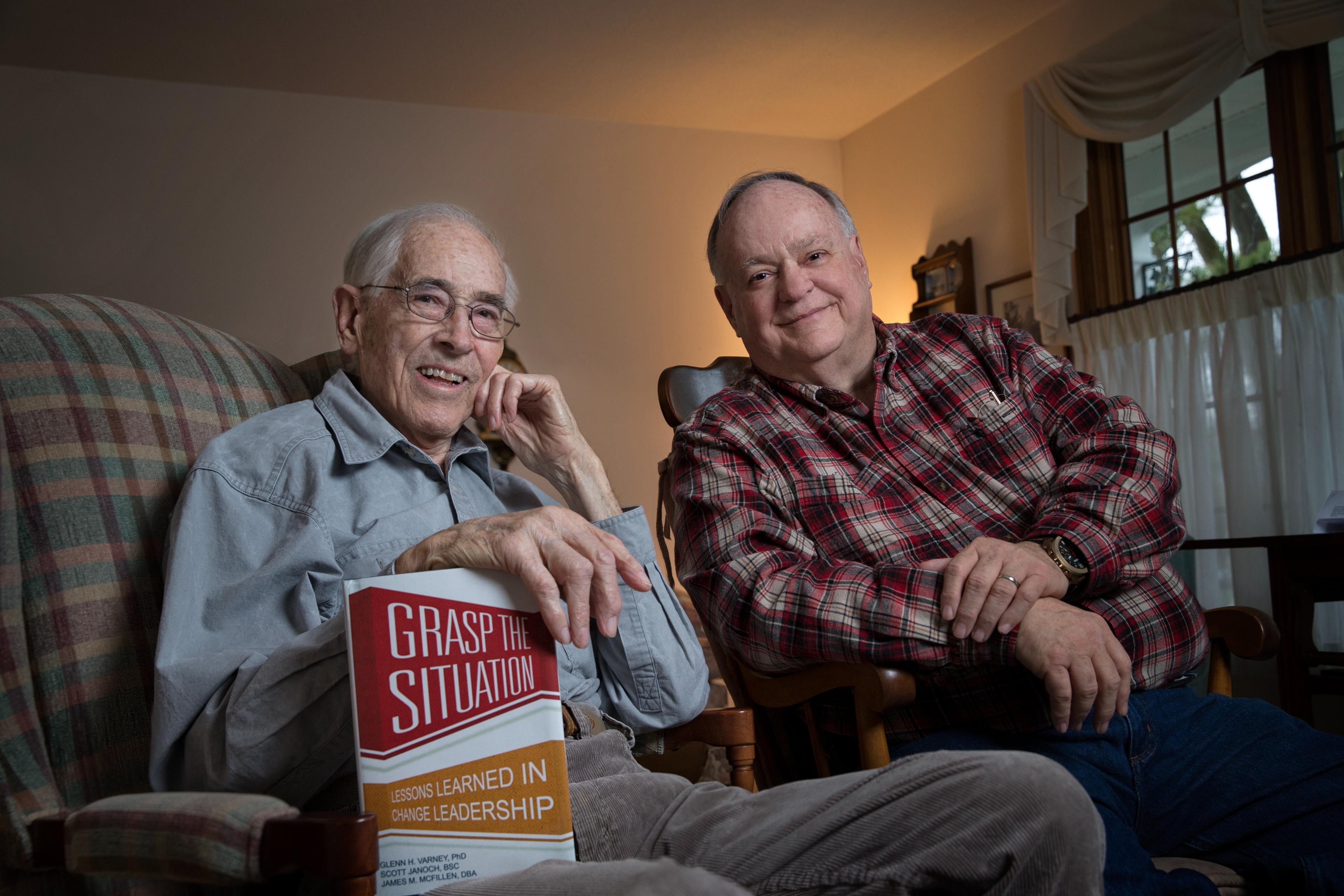
A timeless resource: BGSU organizational change management research still highly sought after
Estimated Reading Time:
The article “Organizational Diagnosis: An Evidence-Based Approach” has been read more than 58,000 times
#1 University in Ohio for Student Experience
Innovative engineering degrees, #1 public university in the midwest students would choose again for the fourth consecutive year.
More than a decade after an article on organizational change management authored by current and retired Bowling Green State University faculty members was published, its groundbreaking research continues to draw interest.
According to ResearchGate, the “Organizational Diagnosis: An Evidence-Based Approach” article has been read more than 58,000 times since its publication in 2012. It is the most frequently read article from BGSU accessed through its site.
“Often in management, there’s a focus on results,” said Dr. James McFillen, an emeritus BGSU business professor and the paper’s lead author. “It intends to be results-oriented rather than cause-oriented. To fix something, you first have to know what is wrong.”
The article's origins date back to the early days of the BGSU Executive Master of Organization Development program, established in 1974 by Dr. Glenn Varney, an emeritus business professor and co-author alongside McFillen; Dr. Deborah A. O’Neil, a professor of management and director of the master’s program; and Dr. William Balzer, emeritus psychology professor.
The program, housed in the Allen W. and Carol M. Schmidthorst College of Business , was the first in Ohio and third in the nation and has been widely recognized for excellence.
Following Varney’s tenure as the program’s director, McFillen led the organization development master's program for more than 15 years, beginning in 1994. He focused on the scientific side of organizational behavior, sparking the work that resulted in the Journal of Change Management article that has drawn interest from various disciplines.
“I decided that if I was going to be involved, it needed to be a scientifically based, research-driven program,” McFillen said. “Over time, I reworked the curriculum to give it a more behavioral science orientation to explain how organizations function and how you could change them.”
During the process of shifting the program’s focus to research, McFillen realized a vital piece was missing — the diagnostic process of determining causes of problems within an organization. He said existing organization development literature offered information on fixing problems but didn’t explain the process of diagnosing them.
“You had all these people writing articles about their favorite things to do to improve organizations, but there was no science behind it,” he said.
To find a solution, McFillen and his colleagues reviewed disciplines that used a diagnostic process to analyze problems, narrowing it down to engineering and medicine. While engineering uses a scientific method to diagnose issues, the process doesn’t account for human behavior. Consequently, they concluded the medical diagnosis model was better suited to organization development.
Using a medical model, the BGSU faculty members developed the concept of organizational diagnosis as the key step toward effective change and have successfully used it in many situations. They developed a rigorous process to correctly identify “symptoms” of problems plaguing an organization.
“The article continually finds a new audience,” Varney said. “If you are going to make a change in an organization, you need to use a very systematic way of doing it. Otherwise, it will backfire on you every single time. Organizations are going through tremendous change these days, and that’s why I think they are still reading our article now.”
First presented in the 2012 article, McFillen and Varney’s methods were later conveyed in a book they co-authored with Scott Janoch, “Grasp the Situation: Lessons Learned in Change Leadership,” which presents the organizational diagnosis process through lively stories from the authors’ experiences.
Related Stories
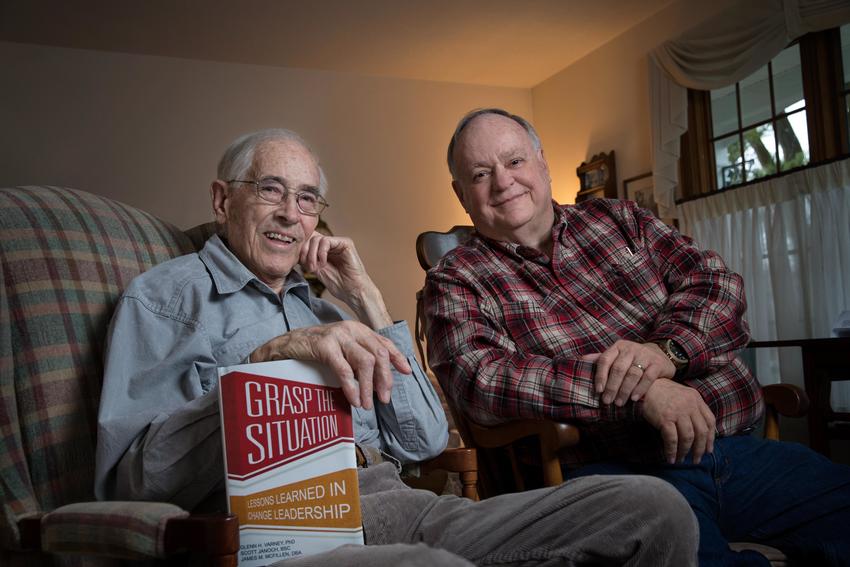
Media Contact | Michael Bratton | [email protected] | 419-372-6349
Updated: 06/26/2024 01:04PM

IMAGES
VIDEO
COMMENTS
How to Read an Engineering Research Paper William G. Griswold CSE, UC San Diego. ... For all these reasons, reading a research paper can require a special approach. To develop an effective reading style for research papers, it can help to know two things: what you should get out of the paper, and where that information is located in the paper. ...
engineering. You'll see that these papers vary tremendously in their terminology and assumptions, and even their structure. Some of you are familiar with many of these formats and structures: you've read hundreds of research papers from a variety of fields. Others might be reading research papers for the first time.
Crafting Your Research Future: A guide to Successful Master's and Ph.D. Degrees in Science & engineering. Morgan & Claypool, 2012. Synthesis Lectures on Engineering #18. Section 3.3: How to Read Papers presents advice on what parts of a journal article to read and what concepts to look for. Purugganan, Mary and Hewitt, Jan.
Researchers spend a great deal of time reading research pa-pers. However, this skill is rarely taught, leading to much wasted e ort. This article outlines a practical and e cient three-pass method for reading research papers. I also de-scribe how to use this method to do a literature survey. Categories and Subject Descriptors: A.1 [Introductory
This is a guide to UIC library databases and other resources in Engineering. some links to articles and webpages that may help you as read scientific papers. ... How to Read a Research Paper. ... An article discussing how to go about reading a math article or chapter. Health Promotion Practice. (2020). How to Read a Scholarly Article [Infographic].
Reading a scientific paper should not be done in a linear way (from beginning to end); instead, it should be done strategically and with a critical mindset, questioning your understanding and the findings. Sometimes you will have to go backwards and forwards, take notes and have multiples tabs opened in your browser.
For that: start by reading the Abstract. Sometimes, that will be all you need from that paper. That's ok. You may find that once you settle on an area you want to explore, you might just read a bunch of abstracts to get a view of the field. When you're just starting out, though, you probably want to go just a bit deeper.
How to Read an Engineering Research Paper Bill Griswold. Reading research papers effectively is challenging. These papers are written in a very condensed style because of page limitations and the intended audience, which is assumed to already know the area well. Moreover, the reasons for writing the paper may be different than the reasons the ...
one or two sentence summary of the paper. deeper, more extensive outline of the main points of the paper, including for example assumptions made, arguments presented, data analyzed, and conclusions drawn. any limitations or extensions you see for the ideas in the paper. your opinion of the paper; primarily, the quality of the ideas and its ...
With the above technique, you can go finish a research paper within one week. That may seem slow, but the understanding is unparalleled. Research papers are dense sources of technical information. Reading them is much harder than reading blogs, which have memes and other sources of entertainment. But the effectiveness of reading papers is also ...
Step 1: find. I used to find new papers by aimlessly scrolling through science Twitter. But because I often got distracted by irrelevant tweets, that wasn't very efficient. I also signed up for ...
Reading papers is difficult, there are no two ways about it. Advances in fields such as machine learning, deep learning, data science, databases, and data engineering often come in the form of academic research, whose language is that of academic papers. Think about some of the techniques you might use: Convolutional Neural Networks, PCA, and ...
[00:16:12] Rebecca Silverman: Yeah, so there is research that looks at the complexity of reading, um, in a, uh, on paper versus in a digital environment. And part of what you need to consider is that the actual act of reading in those two, um, contexts is very different. In paper, you're going, you know, you're turning pages.
engineering take a course that surveys software engineering research. The course has a reading load of 56 papers, mostly - research conference papers, per week. The readings are from the primary literature, both classic and recent papers. When we originally introduced this course, students complained strenuously about the reading load.
This resource is an updated version of Muriel Harris's handbook Report Formats: A Self-instruction Module on Writing Skills for Engineers, written in 1981. The primary resources for the editing process were Paul Anderson's Technical Communication: A Reader-Centered Approach (6th ed.) and the existing OWL PowerPoint presentation, HATS: A ...
3. Connected Papers. A research paper is not born in isolation. On the contrary, every paper is connected to several other papers. A reader would be interested in exploring in references and citations mentioned in the paper. Connected papers is a visual tool created to address this specific point. It creates a graph consisting of the papers ...
Physical and thermomechanical characterization of unidirectional Helicteres isora fiber-reinforced polylactic acid bio-composites. Prashantha Acharya. , Dayananda Pai. & G. T. Mahesha. Article. 26 ...
Top 100 in Engineering - 2022 This collection highlights our most downloaded* engineering papers published in 2022. Featuring authors from around the world, these papers showcase valuable research ...
Must-read papers on prompt-based tuning for pre-trained language models. - thunlp/PromptPapers ... Machine Intelligence Research. Tianxiang Sun, Xiangyang Liu, Xipeng Qiu, Xuanjing Huang , 2021.9. Pilot Work ... A Prompt Pattern Catalog to Enhance Prompt Engineering with ChatGPT. Jules White, Quchen Fu, Sam Hays, Michael Sandborn, Carlos Olea, ...
Papers. The following are the latest papers (sorted by release date) on prompt engineering for large language models (LLMs). We update the list of papers on a daily/weekly basis. Overviews. Prompt Design and Engineering: Introduction and Advanced Methods (opens in a new tab) (January 2024)
Science, technology, reading and writing, engineering, art, and mathematics (STREAM) education is an emerging form of STEM/STEAM education. STEM education research focuses on how students acquire knowledge and skills. The potential of reading and writing to effectively support students in STEM education has been the focus of research.
Continually refer back to the original question, the methods, and the results for each section. It is ok to jump around a lot while reading, for example, read the first aim, read the methods for the first aim, then the results and conclusions for the first aim... repeat for the second. Or read through and then jump around. 1.
Experienced exam markers may struggle to spot answers generated by Artificial Intelligence (AI), researchers have found. The study was conducted at the University of Reading, UK, where university leaders are working to identify potential risks and opportunities of AI for research, teaching, learning, and assessment, with updated advice already issued to staff and students as a result of their ...
A timeless resource: BGSU organizational change management research still highly sought after The article's origins date back to the early days of the BGSU Executive Master of Organization Development program, established in 1974 by Dr. Glenn Varney, one of the paper's authors.
These achieve 77% of the optimising potential of an autotuning search, and 45% disassembly round trip (14% exact match). This release aims to provide a scalable, cost-effective foundation for further research and development in compiler optimization by both academic researchers and industry practitioners.